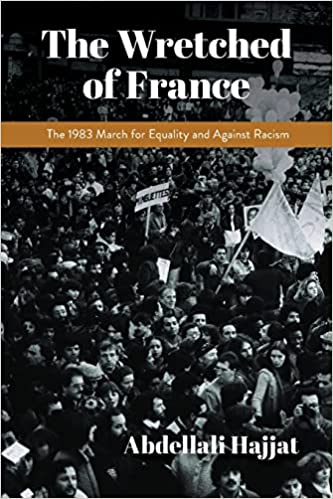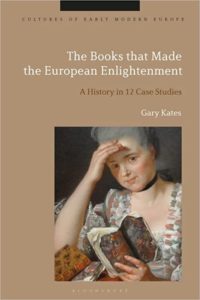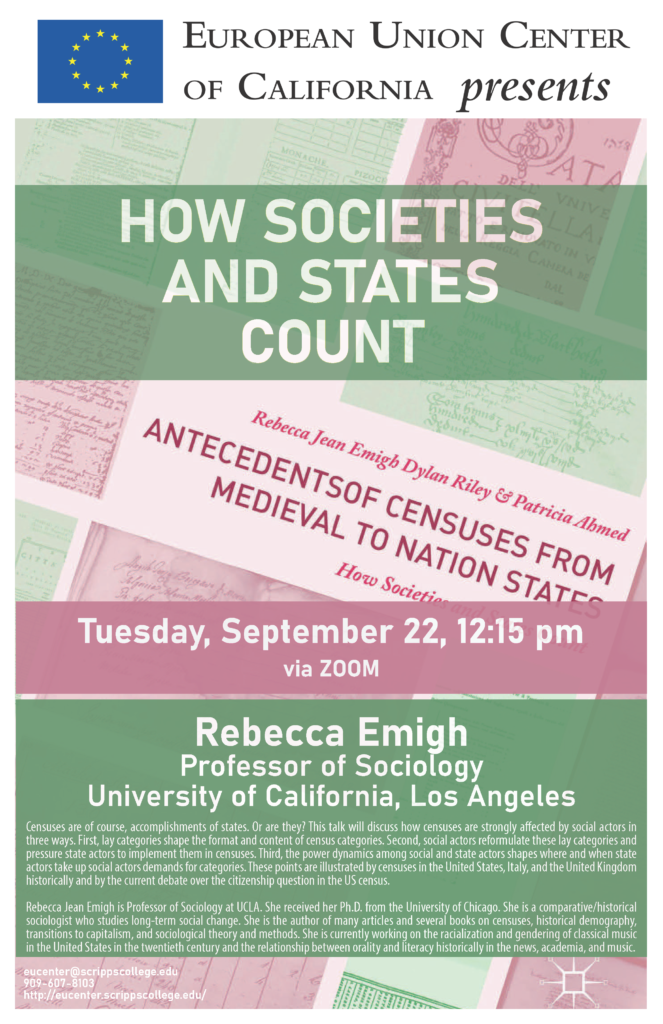Events Archive
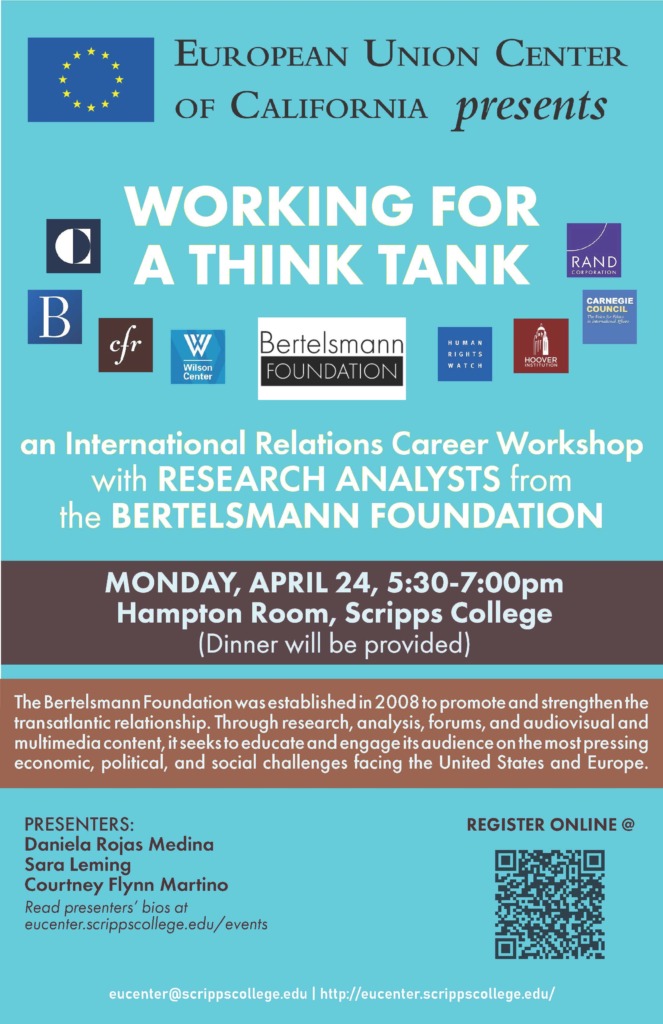 Spring 2023 Career Workshop: WORKING FOR A THINK TANK
Spring 2023 Career Workshop: WORKING FOR A THINK TANK
with RESEARCH ANALYSTS from the BERTELSMANN FOUNDATION
April 24, 2023, 5:30-7:00pm (dinner will be provided)
Hampton Room, Scripps College
The Bertelsmann Foundation was established in 2008 to promote and strengthen the transatlantic relationship. Through research, analysis, forums, and audiovisual and multimedia content, we seek to educate and engage our audience on the most pressing economic, political, and social challenges facing the United States and Europe. Our aim is to bring our work to audiences beyond Washington and Brussels and continue learning together how the transatlantic relationship affects us all, and how we can shape it in the future.
PRESENTERS:
Daniela Rojas Medina
Daniela Rojas Medina joined the Bertelsmann Foundation in 2021 as a Research Analyst. Her area of expertise is technology policy in the U.S. and European Union. She is also responsible for managing the RANGE crowdsourced forecasting platform.
Daniela has a Master’s degree from Georgetown University’s School of Foreign Service, where she did research on emerging technology and privacy, particularly on vehicle-to-everything communication technology (V2X). She also graduated from Penn State University with two BA degrees in International Politics and German, as well as a minor in Global Security. Prior to joining Bertelsmann, Daniela was a Program Officer at the German American Business Council in Washington, D.C. and worked with BMW’s Government and External Affairs team. Originally from Venezuela, she speaks fluent Spanish and, having spent time in Switzerland and Germany, she also speaks some German.
Sara Leming
Sara Leming joined the Bertelsmann Foundation in 2021 as a Research Analyst and is a general EU and transatlantic relations expert. Sara has a Master’s degree in European Union Policy Studies from James Madison University in Florence and an undergraduate degree in Political Science and Leadership Studies from Christopher Newport University. Prior to joining Bertelsmann, Sara worked in Brussels as a trainee at the U.S. Mission to the European Union and the Wilfried Martens Centre for European Studies. Most recently, she worked as a trainee policy adviser at the EU Delegation to the United Nations in New York City and on the Government Projects team at the German American Chamber of Commerce in Chicago.
Courtney Flynn Martino
Courtney Flynn Martino joined the Bertelsmann Foundation in 2022 as a Senior Manager of Transatlantic Relations. She manages the Transatlantic Barometer platform and conducts research on U.S.-German relations, with a focus on eastern Germany. Courtney comes to Bertelsmann after five years with the Friedrich Naumann Foundation, where she managed an economics-focused exchange platform for international experts.
Courtney graduated with a Master’s degree in German and European Studies from Georgetown University’s School of Foreign Service, with a Certificate in Diplomatic Studies. Her graduate research focused on the impact of U.S. public diplomacy strategies in countering violent extremism. She has a double B.A. in German and Classical Studies from Wake Forest University. Courtney is fluent in German, after spending a year in Germany as a 2014 Fulbright grant recipient.
For students only. Limited to 20 participants.
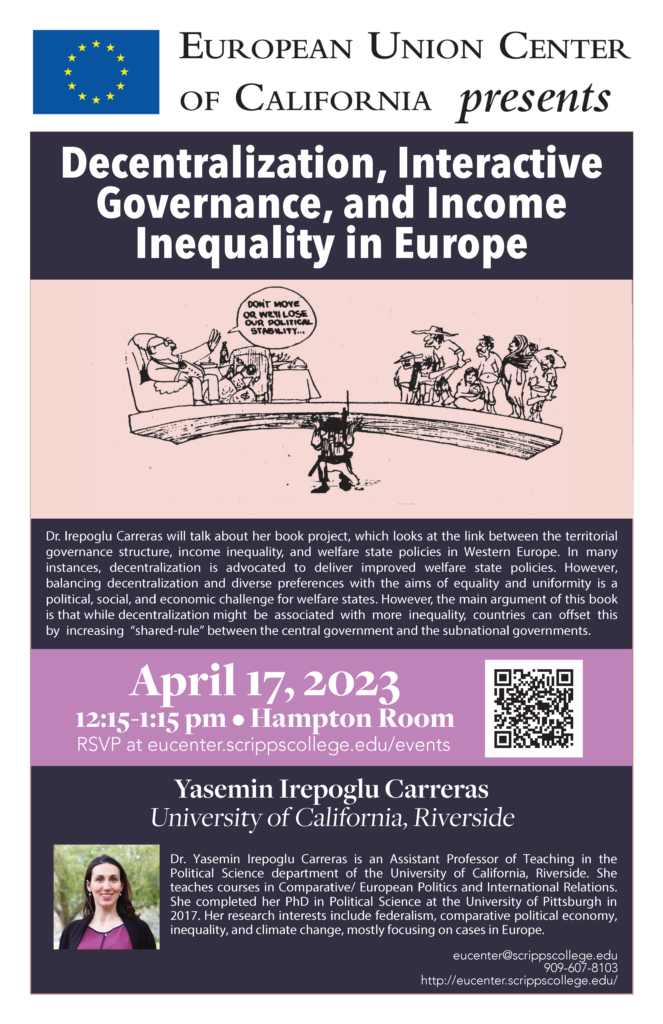 Decentralization, Interactive Governance, and Income Inequality in Europe
Decentralization, Interactive Governance, and Income Inequality in Europe
YASEMIN IREPOGLU CARRERAS, University of California, Riverside
April 17, 2023, 12:15-1:15pm
Hampton Room, Scripps College
In this talk, Dr. Irepoglu Carreras will talk about her book project, which looks at the link between the territorial governance structure and inequality in income and welfare state policies in Western Europe. Multilevel contexts, whether they are constitutionally federal or unitary states, aim to balance the self and shared rule of different territorial levels to cater to the preferences of citizens. In many instances, decentralization is often advocated to deliver improved welfare state policies. However, balancing decentralization and diverse preferences with the aims of equality and uniformity is a political, social, and economic challenge for welfare states. The main argument of this book is that while decentralization might be associated with more inequality, countries can offset this by increasing “shared-rule” between the central government and the subnational governments. This talk will focus on findings from her research conducted in Spain, Germany, France and Sweden for this book project.
Dr. Yasemin Irepoglu Carreras is an Assistant Professor of Teaching in the Political Science department of the University of California, Riverside. She teaches courses in Comparative/ European Politics and International Relations. She completed her PhD in Political Science at the University of Pittsburgh in 2017. Her research interests include federalism, comparative political economy, inequality, and climate change, mostly focusing on cases in Europe. She has published in journals including Comparative Political Studies, Electoral Studies and European Policy Analysis. Her book project analyzes the impact of decentralization and interactive governance on income inequality in Western Europe.
EUROPEAN HISTORY & CULTURE Faculty Workshop
The Carpenter’s Shopfront: the low-hanging ‘shot wyndowe’ in Chaucer’s Miller’s Tale
ELLEN RENTZ, Claremont McKenna College
April 13, 2023, 4:15-5:30pm
Scripps College
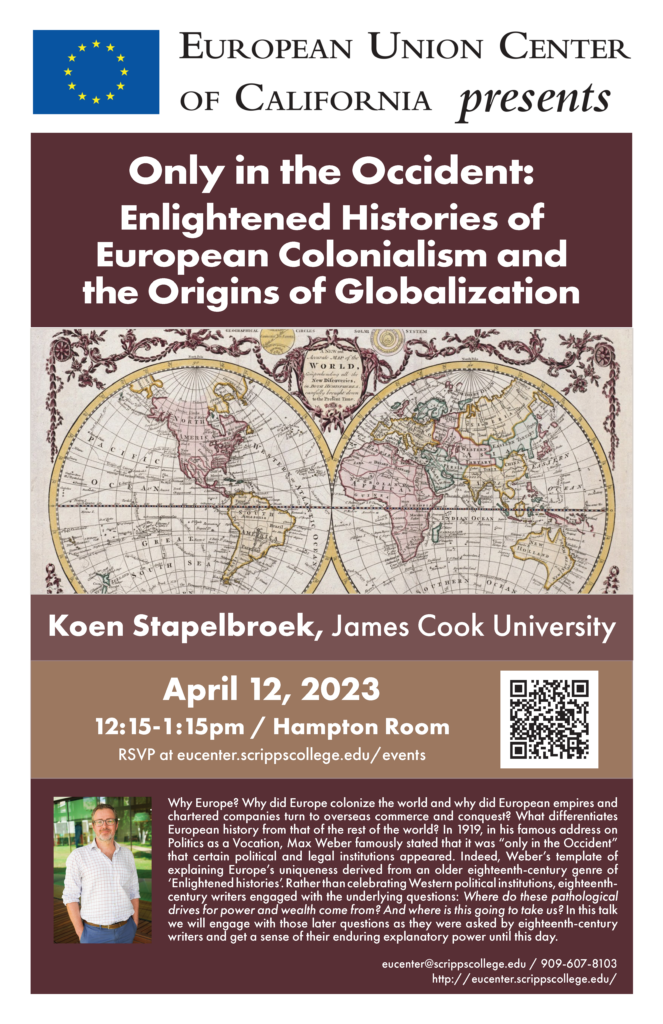 Only in the Occident: Enlightened Histories of European Colonialism and the Origins of Globalization
Only in the Occident: Enlightened Histories of European Colonialism and the Origins of Globalization
KOEN STAPELBROEK, James Cook University
April 12, 2023, 12:15-1:15pm
Hampton Room, Scripps College
Why Europe? Why did Europe colonize the world and why did European empires and chartered companies turn to overseas commerce and conquest? What differentiates European history from that of the rest of the world? In 1919, in his famous address on Politics as a Vocation, Max Weber famously stated that it was “only in the Occident” that certain political and legal institutions appeared. Indeed, Weber’s template of explaining Europe’s uniqueness derived from an older eighteenth-century genre of ‘Enlightened histories’. Rather than celebrating Western political institutions, eighteenth-century writers engaged with the underlying questions: Where do these pathological drives for power and wealth come from? And where is this going to take us? In this talk we will engage with those later questions as they were asked by eighteenth-century writers and get a sense of their enduring explanatory power until this day.
Koen Stapelbroek is Professor of Humanities and Dean of the College of Arts, Society and Education at James Cook University, Queensland, Australia. Coming from a background in political thought and intellectual history – including a PhD in History from the University of Cambridge (2004) – his work focuses on institutions of trade, such as free ports and commercial treaties, the history of the idea of the state and the history of international organizations. Before coming to North Queensland, he worked in Cambridge, Helsinki, Rotterdam, Venice and Sydney. Stapelbroek has published widely on European intellectual, political and economic history.
Thursday Night Keynote:
EU Common Security Lecture
The Long-Term Consequences of the War in Ukraine
DAVID ANDREWS, Scripps College
April 6, 2023, 6:00-7:00pm
Hampton Room, Scripps College
Russia’s war with Ukraine is the first sustained military conflict between European powers since World War II. The conflict has upended power relations on the Eurasian continent, challenged core assumptions on which national polices have rested, and transformed norms of international conduct (including norms of international economic relations). This talk will identify leading instances of these changes and explore their likely consequences.
David Andrews is Professor of International Relations at Scripps College where he is also the Gabrielle Marie-Louise Jungels-Winkler Chair in Contemporary European Studies and founding director of the European Union Center of California. Dr Andrews’ scholarly research has addressed Atlantic political, security, and economic relations; the European Union and European integration; and international relations, diplomacy, and statecraft. His books include The Atlantic Alliance Under Stress: US-European Relations After Iraq (Cambridge University Press), Orderly Change: International Monetary Relations Since Bretton Woods (Cornell University Press), and International Monetary Power (also with Cornell).
Friday Lunch Keynote:
How Did the European Union Get So Much Economic Authority? Ideas and Bargaining Sequences in European Integration
CRAIG PARSONS, University of Oregon
April 7, 2023, 12:30-1:30pm
Hampton Room, Scripps College
Not even many experts realize it, but the European Union claims certain kinds of authority over its member-states that exceed the powers of any government in a national federation. In its Single Market, member-states have more limited authority over cross-border economic flows than do states in the United States, Canada, or Australia. In the Eurozone, EU authority to approve member-state annual budgets exceeds the analogous powers of any federal government. Leading theories of European integration have difficulty explaining the delegation of such strong powers to the EU. To explain them, we must pay attention to the power of certain ideas that prevailed in EU history, and to sequences of bargaining between different national positions that led in unintended ways to more EU authority than anyone directly championed.
Craig Parsons is Professor of Political Science at the University of Oregon and Senior Researcher at the ARENA Center for European Studies at the University of Oslo. A specialist of the European Union and political economy, he is the author of many journal articles and author or co-editor of six books: A Certain Idea of Europe (Cornell University Press), How to Map Arguments in Political Science (Oxford University Press), Immigration and the Transformation of Europe (Cambridge University Press), With US or Against US: European Trends in American Perspective (Oxford University Press), Constructing the International Economy (Cornell University Press), and Introduction to Political Science: How to Think for Yourself about Politics (Pearson).
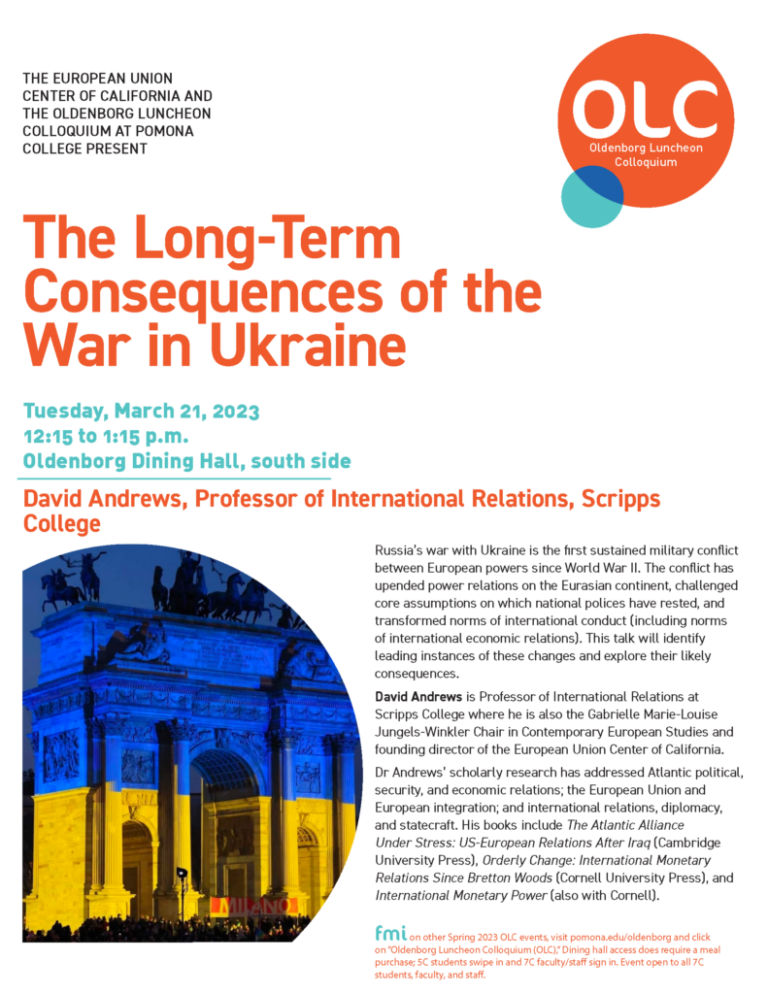 The Long-Term Consequences of the War in Ukraine
The Long-Term Consequences of the War in Ukraine
DAVID ANDREWS, Scripps College
March 21, 2023, 12:15-1:15pm
Oldenborg Dining Hall, south side, Pomona College
Russia’s war with Ukraine is the first sustained military conflict between European powers since World War II. The conflict has upended power relations on the Eurasian continent, challenged core assumptions on which national polices have rested, and transformed norms of international conduct (including norms of international economic relations). This talk will identify leading instances of these changes and explore their likely consequences.
David Andrews is Professor of International Relations at Scripps College where he is also the Gabrielle Marie-Louise Jungels-Winkler Chair in Contemporary European Studies and founding director of the European Union Center of California. Dr Andrews’ scholarly research has addressed Atlantic political, security, and economic relations; the European Union and European integration; and international relations, diplomacy, and statecraft. His books include The Atlantic Alliance Under Stress: US-European Relations After Iraq (Cambridge University Press), Orderly Change: International Monetary Relations Since Bretton Woods (Cornell University Press), and International Monetary Power (also with Cornell).
This talk is co-organized with Pomona College as part of the Oldenborg Luncheon Colloquium series.
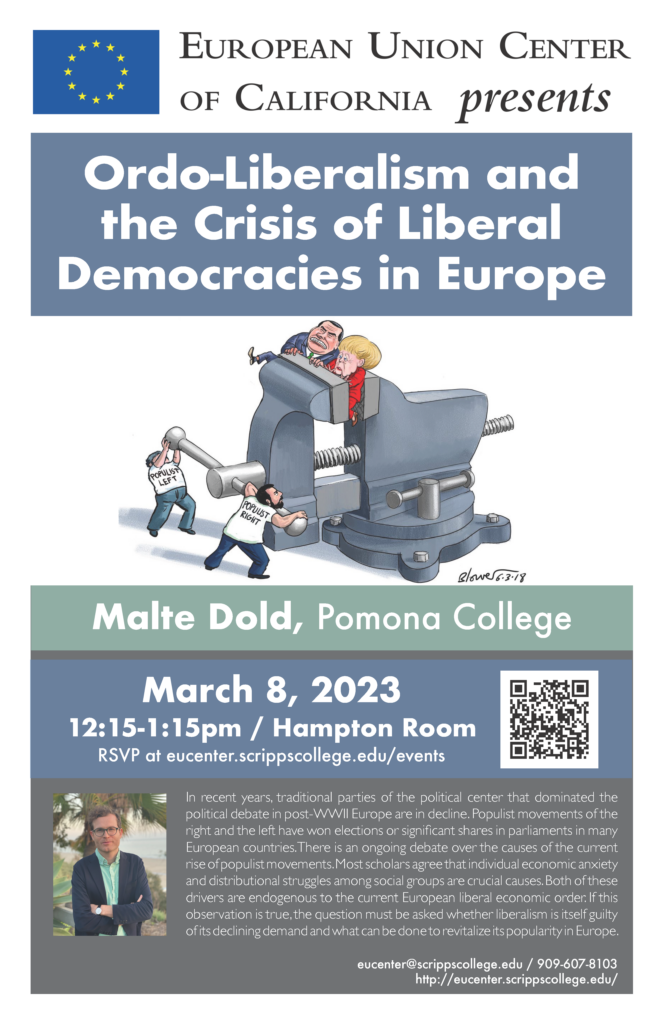 Ordo-Liberalism and the Crisis of Liberal Democracies in Europe
Ordo-Liberalism and the Crisis of Liberal Democracies in Europe
MALTE DOLD, Pomona College
March 8, 2023, 12:15-1:15pm
Hampton Room, Scripps College
In recent years, traditional parties of the political center that dominated the political debate in post-WWII Europe are in decline. Populist movements of the right and the left have won elections or significant shares in parliaments in many European countries. There is an ongoing debate over the causes of the current rise of populist movements. Most scholars agree that individual economic anxiety and distributional struggles among social groups are crucial causes. Both of these drivers are endogenous to the current European liberal economic order. If this observation is true, the question must be asked whether liberalism is itself guilty of its declining demand and what can be done to revitalize its popularity in Europe.
Malte Dold is an assistant professor in the Economics Department at Pomona College in California. He holds a master’s degree in Philosophy and Economics from the University of Bayreuth, and received his PhD in Economics from the University of Freiburg. His research lies at the intersection of behavioral economics, philosophy of economics, and history of economic thought.
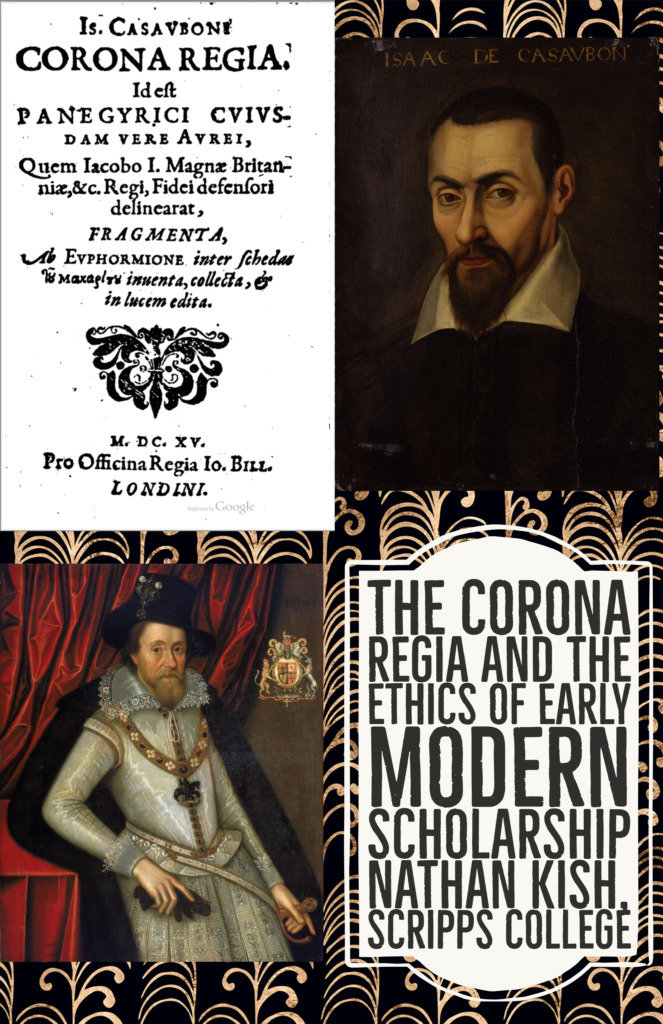 EUROPEAN HISTORY & CULTURE Faculty Workshop
EUROPEAN HISTORY & CULTURE Faculty Workshop
The Corona Regia and the Ethics of Early Modern Scholarship
NATHAN KISH, Scripps College
March 2, 2023, 4:15-5:30pm
Scripps College
How Democracies Die
SYLWIA GREGORCZYK, Free Courts Foundation
February 27, 2023, 4:15-5:30pm
Kravis 21, Claremont McKenna College
Poland was once a young, thriving democracy, a role model after the collapse of communism. However, it is now in the middle of a legal/constitutional crisis. Democracies do not die spectacularly, but usually through creeping authoritarianism, as with Poland. What are the signs of a collapsing democracy and can this be prevented? This is important given the crisis of democratic values in Europe and world-wide and the increasing acceptance of populists. A case study on Poland can be a warning to other countries, and a source of knowledge for politicians and activists.
Sylwia Gregorczyk-Abram, attorney-at-law and social activist, works with NGOs on developing a civic society and protecting the rule of law and systemic changes in the justice system. She is co-founder of the Justice Defense Committee and Free Courts that monitor and archive political pressure on judges and lawyers and provide them with legal aid. She regularly participates in legislative processes in Parliament as an expert in parliamentary Constitutional Governance and Reform of the Justice System groups. She also regularly participates in European Commission meetings, where she presents a civic and expert view of the changes taking place in the Polish justice system. She has been involved in many strategic litigations concerning socially important issues from the point of view of protecting civil rights and freedoms. She represents national and sexual minorities, refugees, victims of violence and police brutality before courts. She also represents judges (including Supreme Court judges) before EU Court of Justice and European Court of Human Rights in key proceedings on the independence of courts and judges. The winner of the “Golden Paragraph” in the category of the best lawyer in Poland, in 2016 she received the Pro Bono Lawyer of Year Award. She was also included in the Forbes ranking of “the most influential women in Poland” for 2020. In 2021 she was a fellow at Yale University as part of The Maurice R. Greenberg World Fellows Program.
This event is co-organized with the Mgrublian Center for Human Rights and the Keck Center for International and Strategic studies at Claremont McKenna College. Additional details coming soon.
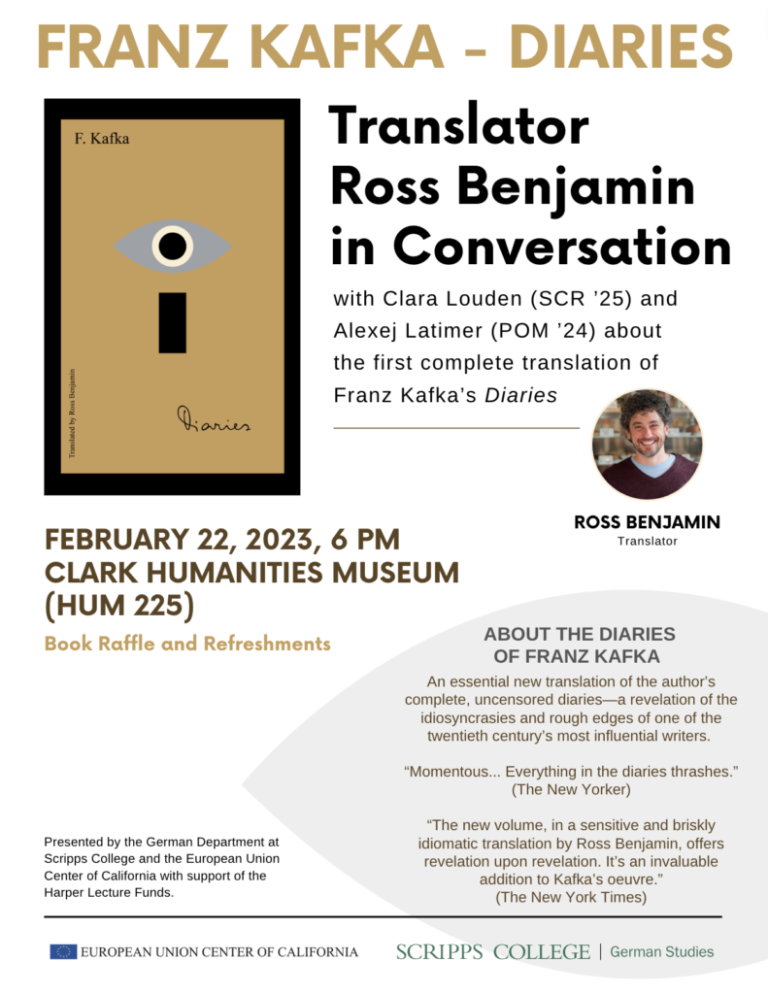 Franz Kafka: Diaries
Franz Kafka: Diaries
Translator ROSS BENJAMIN in Conversation with Clara Louden (SCR ’25) and Alexej Latimer (POM ’24) about the first complete translation of Franz Kafka’s Diaries
Five participants will have a chance to win a autographed copy of the book.
February 22, 2023, 6:00-7:30pm
Clark Humanities Museum, Scripps College
This event is organized by the German Department at Scripps College and co-sponsored by the EU Center.
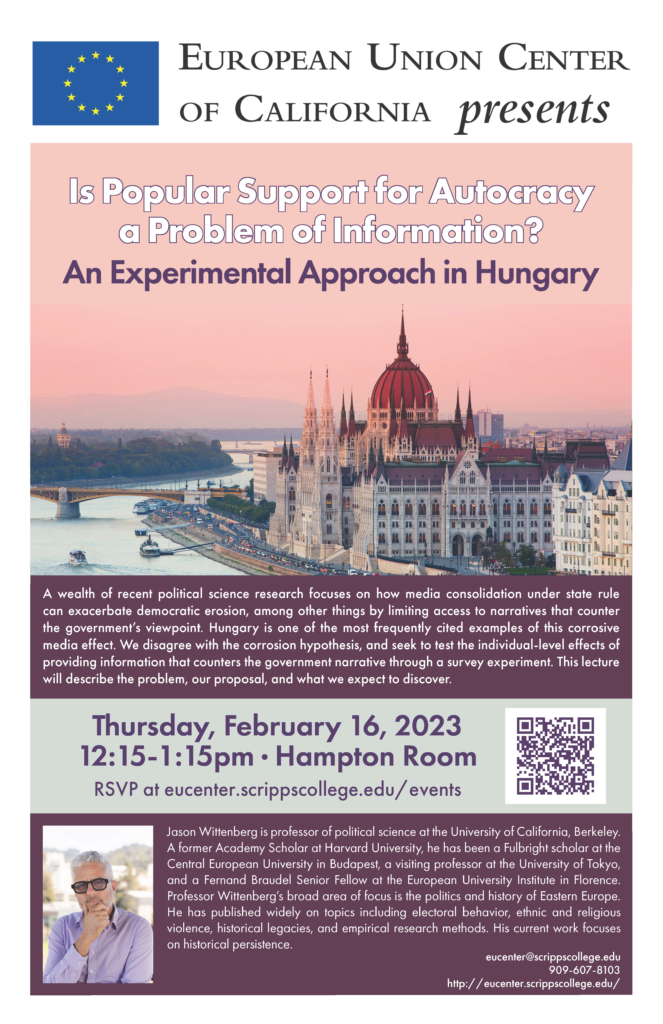 Is Popular Support for Democratic Liberal Decline a Problem of Information? An Experimental Approach in Hungary
Is Popular Support for Democratic Liberal Decline a Problem of Information? An Experimental Approach in Hungary
JASON WITTNBERG, University of California, Berkeley
February 16, 2023, 12:15-1:15pm
Hampton Room, Scripps College
A wealth of recent political science research focuses on how media consolidation under state rule can exacerbate democratic erosion, among other things by limiting access to narratives that counter the government’s viewpoint. Hungary is one of the most frequently cited examples of this corrosive media effect. We disagree with the corrosion hypothesis, and seek to test the individual-level effects of providing information that counters the government narrative through a survey experiment. This lecture will describe the problem, our proposal, and what we expect to discover.
Jason Wittenberg is professor of political science at the University of California, Berkeley. A former Academy Scholar at Harvard University, he has been a Fulbright scholar at the Central European University in Budapest, a visiting professor at the University of Tokyo, and a Fernand Braudel Senior Fellow at the European University Institute in Florence. Professor Wittenberg’s broad area of focus is the politics and history of Eastern Europe. He has published widely on topics including electoral behavior, ethnic and religious violence, historical legacies, and empirical research methods. His first book, Crucibles of Political Loyalty: Church Institutions and Electoral Continuity in Hungary (Cambridge, 2006), won the 2009 Hubert Morken award for the best political science book published on religion and politics. He is the co-author, most recently, of Intimate Violence: Anti-Jewish Pogroms on the Eve of the Holocaust (Cornell, 2018), winner of the 2019 Bronislaw Malinowski Award in the Social Sciences. He received his Ph.D. from the Massachusetts Institute of Technology. His current work focuses on historical persistence.
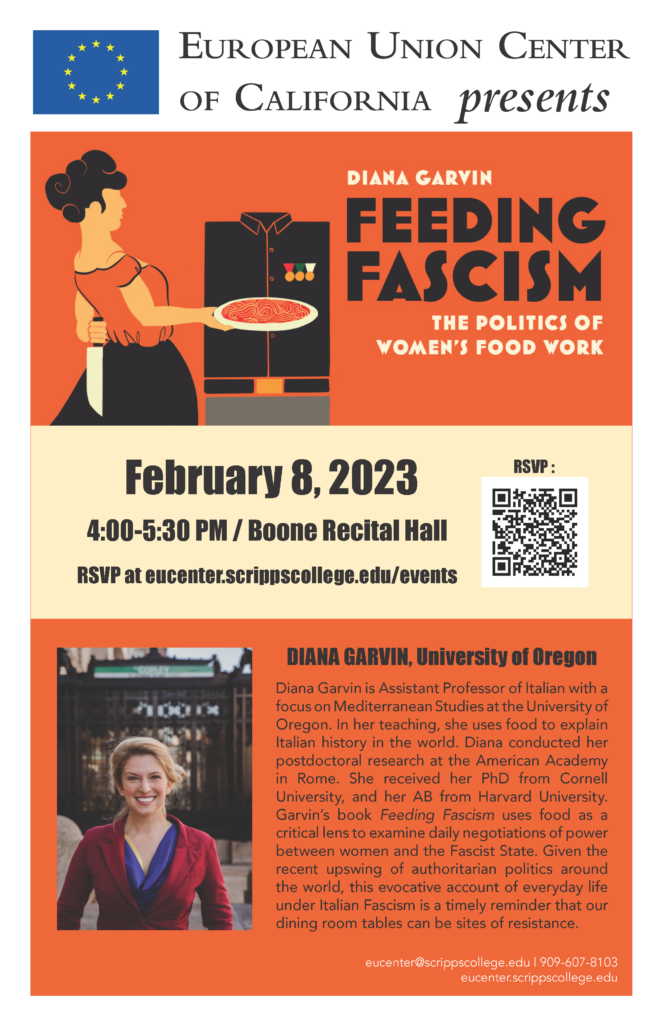 Feeding Fascism: The Politics of Women’s Food Work
Feeding Fascism: The Politics of Women’s Food Work
DIANA GARVIN, University of Oregon
February 8, 2023, 4:00-5:30pm
Boone Recital Hall, Garrison Theater, Scripps College
How did women negotiate the politics of Italy’s Fascist regime in their daily lives? “Feeding Fascism” tackles this question with a new body of evidence, ranging from industrial foodways to private letters by women who fed their families through industrial and agricultural labor. It uses food as a critical lens to examine daily negotiations of power between women and the Fascist state. Drawing on extensive research over the past decade in Italian museums, libraries, and archives, this talk illustrates everyday life under fascism with rich illustrations of cookbooks, kitchen utensils, cafeteria plans, and culinary propaganda. These visual materials connect women’s political beliefs with the places that they lived and worked, and the objects that they owned and borrowed. This talk also incorporates first-hand accounts, such as diaries, work songs, and drawings, that show how women and the Fascist state vied for control over the national diet across many manifestations – cooking, feeding, and eating – to assert and negotiate their authority. Revealing the national stakes of daily choices, Feeding Fascism attests to the power of food. Given the recent upswing of authoritarian politics around the world, this evocative account of everyday life under Italian Fascism is a timely reminder that our dining room tables can be sites of resistance.
Diana Garvin is Assistant Professor of Italian with a focus on Mediterranean Studies at the University of Oregon. In her teaching, she uses food to explain Italian history in the world. Lectures explore topics like the birth of Neapolitan pizza, Futurist food, and the G-8 pesto debate. Diana conducted her postdoctoral research at the American Academy in Rome. She received her PhD from Cornell University, and her AB from Harvard University. Garvin often writes articles on daily life under the dictatorship. She has explored everyday objects ranging from baby dolls to razor blades for journals like Critical Inquiry, Journal of Modern European History, Journal of Modern Italian History, Modern Italy, Annali d’italianistica, Design Issues, Food and Foodways, gender/sexuality/italy and Signs. Her research has been supported by Fulbright, Getty Library, Oxford University, Wolfsonian-FIU, Julia Child Foundation, CLIR Mellon, FLAS, AAUW, NWSA, AFS, APS, and other fellowships. As a culinary historian, Diana writes and comments on the politics of food for publications like The Washington Post, Punch, and Saveur, and speaks on podcasts like Los Angeles Review of Books’ “55 Voices for Democracy” and Heritage Radio Network’s “A Taste of the Past.” Her book Feeding Fascism: The Politics of Women’s Food Work was a pick for the 2022 Portland Book Festival and Civil Eats Summer 2022 Book List. She has also published a travel guide, Let’s Go: Spain and Portugal.
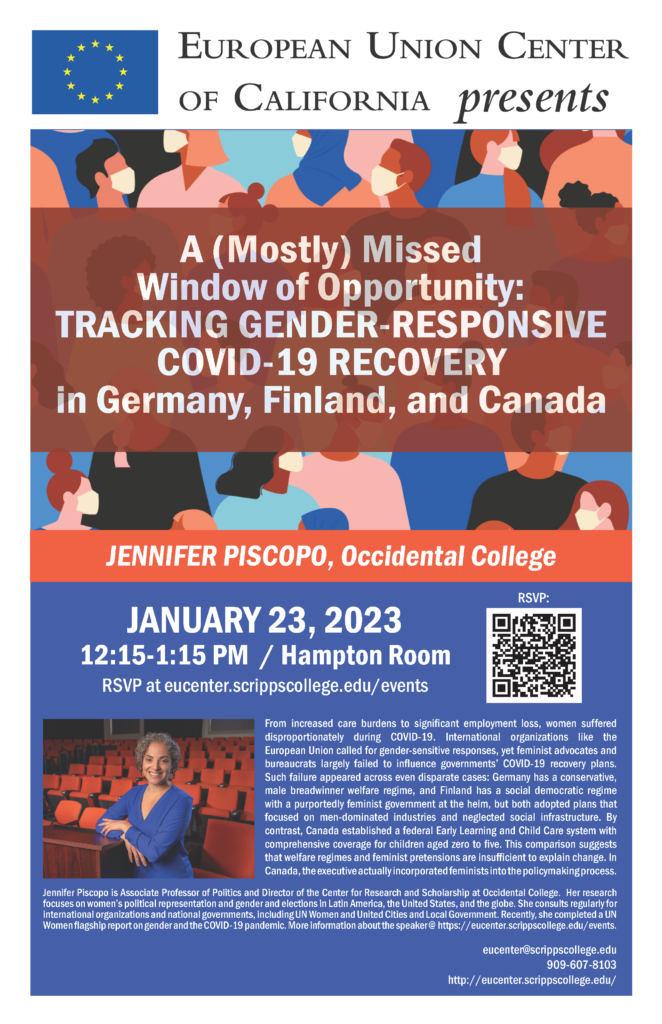 A (Mostly) Missed Window of Opportunity: Tracking Gender-Responsive COVID-19 Recovery in Germany, Finland, and Canada
A (Mostly) Missed Window of Opportunity: Tracking Gender-Responsive COVID-19 Recovery in Germany, Finland, and Canada
JENNIFER PISCOPO, Occidental College
January 23, 2023, 12:15-1:15pm
Hampton Room (2nd floor of Malott), Scripps College
From increased care burdens to significant employment loss, women suffered disproportionately during COVID-19. International organizations like the European Union called for gender-sensitive responses, yet feminist advocates and bureaucrats largely failed to influence governments’ COVID-19 recovery plans. Such failure appeared across even disparate cases: Germany has a conservative, male breadwinner welfare regime, and Finland has a social democratic regime with a purportedly feminist government at the helm, but both adopted plans that focused on men-dominated industries and neglected social infrastructure. By contrast, Canada established a federal Early Learning and Child Care system with comprehensive coverage for children aged zero to five. This comparison suggests that welfare regimes and feminist pretensions are insufficient to explain change. In Canada, the executive actually incorporated feminists into the policymaking process.
Jennifer M. Piscopo is Associate Professor of Politics and Director of the Center for Research and Scholarship at Occidental College. Her research focuses on women’s political representation and gender and elections in Latin America, the United States, and the globe. She has published in over 30 peer-reviewed journals, including The American Journal of Political Science, Social Politics, Comparative Political Studies, The Latin American Research Review, Latin American Politics and Society, and Politics, Groups, and Identities. With Susan Franceschet and Mona Lena Krook, she is editor of The Impact of Gender Quotas (Oxford University Press, 2012). Her work also has appeared in multiple edited volumes and as review essays in noted journals. She consults regularly for international organizations and national governments, including UN Women and United Cities and Local Government. Recently, she completed a UN Women flagship report on gender and the COVID-19 pandemic. Her public writing has appeared in The New York Times, The Washington Post, The Los Angeles Times, and Ms. Magazine, among other outlets. She has received research awards from the Carrie Chapman Catt Center for Women and Politics, the American Political Science Association, the International Political Science Association, and the Latin American Studies Association. Prior to joining the Politics Faculty at Occidental College, she was Assistant Professor of Public Policy at Salem College from 2011-2013. She received her Ph.D. in Political Science from the University of California, San Diego in 2011, where she was a Visiting Fellow at the Center for U.S.-Mexican Studies from 2009-2010. She was the the 2016-2017 Peggy Rockefeller Visiting Scholar at the David Rockefeller Center of Latin American Studies at Harvard University. A Gates Cambridge Scholar, she received her M.Phil. in Latin American Studies with distinction from the University of Cambridge in 2003. She graduated with top honors from Wellesley College in 2002.
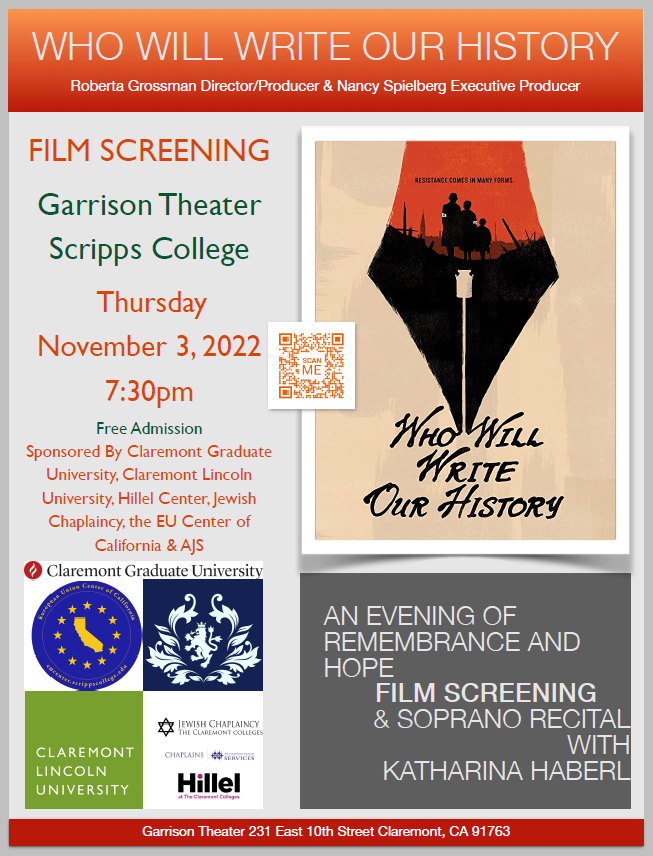 Who Will Write Our Stories: An Evening of Remembrance and Hope
Who Will Write Our Stories: An Evening of Remembrance and Hope
Music Recital & Film Screening
November 3, 2022, 7:30pm
Garrison Theater, Scripps College
Led by historian Emanuel Ringelblum and known by the code name Oyneg Shabes, a clandestine group of journalists, scholars, and community leaders in the Warsaw Ghetto vowed to defeat Nazi lies and propaganda not with guns or fists but with pen and paper. Now, for the first time, their story is told in the acclaimed documentary featuring the voices of three-time Academy Award® nominee Joan Allen and Academy Award® winner Adrien Brody. Called “immensely important” and “heartbreaking” by the New York Times and “moving and significant” by the Los Angeles Times, Who Will Write Our History is a gripping tale of resistance and survival.
EUROPEAN HISTORY & CULTURE Faculty Workshop
Pietro Della Valle and the Portuguese Coalition in Rome, 1640-1650
COREY TAZZARA, Scripps College
October 27, 2022, 4:15-5:30pm
Scripps College
The Wretched of France: The 1983 March for Equality and Against Racism
ABDELLALI HAJJAT, Université libre de Bruxelles
October 26, 2022, 12:00-1:30pm
VIA ZOOM
In 1983—as France struggled with race-based crimes, police brutality, and public unrest—youths from Vénissieux (working-class suburbs of Lyon) led the March for Equality and Against Racism, the first national demonstration of its type in France. As Abdellali Hajjat reveals, the historic March for Equality and Against Racism symbolized for many the experience of the children of postcolonial immigrants. Inspired by the May ’68 protests, these young immigrants stood against racist crimes, for equality before the law and the police, and for basic rights such as the right to work and housing. Hajjat also considers the divisions that arose from the march and offers fresh insight into the paradoxes and intricacies of movements pushing toward sweeping social change. Translated into English for the first time, The Wretched of France contemplates the protest’s lasting significance in France as well as its impact within the context of larger and comparable movements for civil rights, particularly in the US.
Abdellali Hajjat is Associate Professor of Sociology at the Université Libre de Bruxelles and member of the Group for Research on Ethnic Relations, Migration and Equality. He published Les frontières de l’”identité nationale” and (with Marwan Mohammed) French Islamophobia: How the Elites Forged the “Muslim Problem”.
This event is organized by the UCLA Center for European and Russian Studies (CERS) in co-sponsorship with the UCLA Center for Near Eastern Studies (CNES), the UCLA Center for the Study of International Migration (CSIM), the UCLA Department of European Languages & Transcultural Studies (ELTS), and the European Union Center of California at Scripps College. More information can be found here.
If you wish to purchase the book, you can save 30% with code SAVE30 on iupress.org.
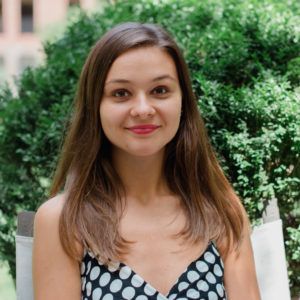 Dinner & Conversation with Ukrainian Journalist ANNA ROMANDASH
Dinner & Conversation with Ukrainian Journalist ANNA ROMANDASH
October 24, 2022, 6:00-7:30pm
Anna Romandash is an award-winning journalist from Ukraine with extensive experience in Europe, the Middle East, and USA. She has contributed her research to Freedom House, Deutsche Welle, US Embassies, the ICJ and the Council of Europe, and held fellowships at CNN and other international news organizations. She works closely with youth on freedom movements, journalism and media training for an EU-wide consortium of universities reaching more than 55,000 students. Ms. Romandash completed two masters degrees, one in global affairs and international peace studies at University of Notre Dame, and a second in media communications at Ukrainian Catholic University. She received honors for her bachelor of arts degree at Lviv National University. Besides fluency in Russian and Ukrainian, Anna speaks English, Spanish, French and Polish.
Ms. Romandash was named Media Freedom Ambassador of Ukraine for her human rights and media coverage and was one of the winners of the European Institute of Mediterranean literary contest for her reporting. She has been recognized for her creative approaches and crowd-funded initiatives, for example developing comic book formats to explain the threats to media freedom, collaborating with artists and media professionals from 20 countries.
When Russia invaded Ukraine on February 24, Anna started writing about the situation in her home country. She has written stories about survivors of Russian-made massacres in Northern Ukraine, the drama of internally displaced people and refugees forced to flee their homes, and volunteers helping others in times of need. She is a part of an investigative team collecting data on human rights violations and crimes against humanity during the Russo-Ukrainian war.
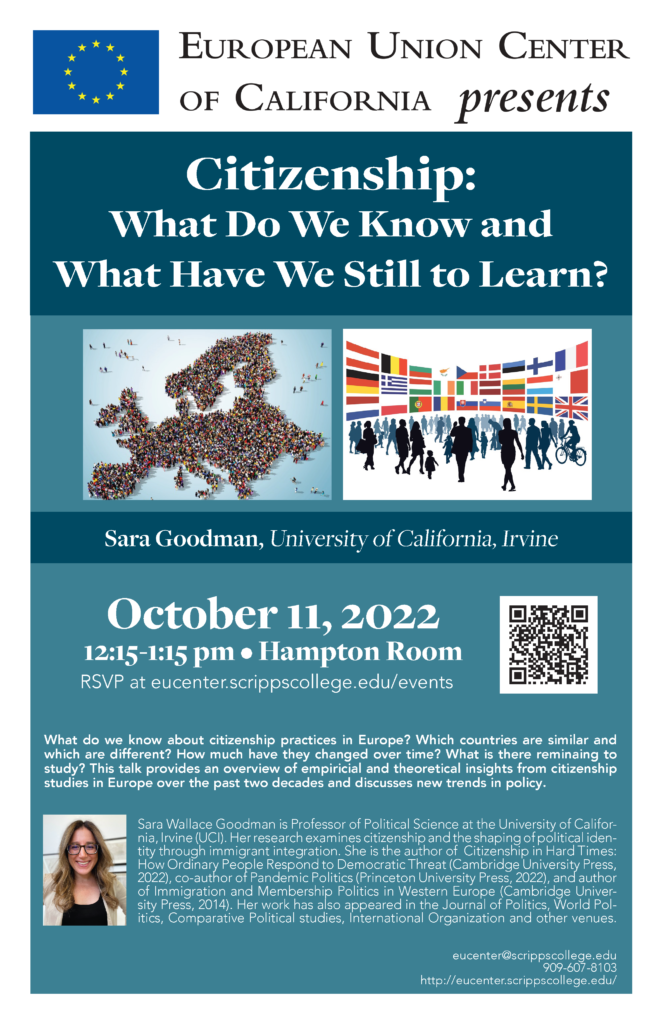 Citizenship: What do We Know and What Have We Still to Learn?
Citizenship: What do We Know and What Have We Still to Learn?
SARA WALLACE GOODMAN, University of California, Irvine
October 11, 2022, 12:15-1:15pm
Hampton Room, Scripps College
What do we know about citizenship practices in Europe? Which countries are similar and which are different? How much have they changed over time? What is there remaining to study? This talk provides an overview of empirical and theoretical insights from citizenship studies in Europe over the past two decades and discusses new trends in policy.
Sara Wallace Goodman is Professor of Political Science at the University of California, Irvine (UCI). Her research examines citizenship and the shaping of political identity through immigrant integration. She is the author of Citizenship in Hard Times: How Ordinary People Respond to Democratic Threat (Cambridge University Press, 2022), co-author of Pandemic Politics (Princeton University Press, 2022), and author of Immigration and Membership Politics in Western Europe (Cambridge University Press, 2014). Her work has also appeared in the Journal of Politics, World Politics, Comparative Political Studies, International Organization, and other venues.
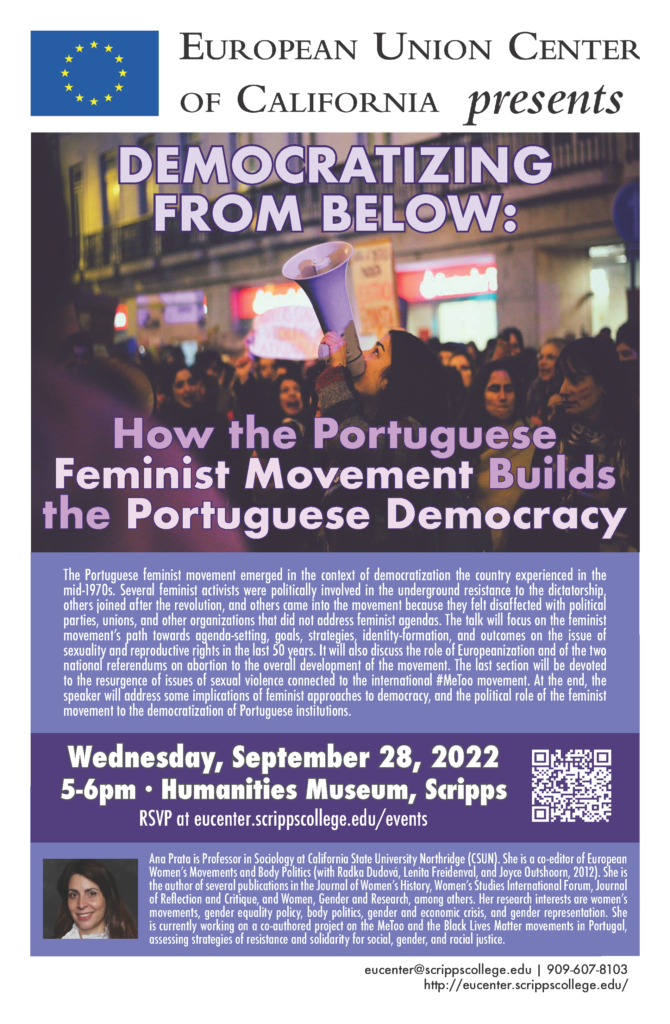 Democratizing From Below – How the Portuguese Feminist Movement Builds the Portuguese Democracy
Democratizing From Below – How the Portuguese Feminist Movement Builds the Portuguese Democracy
ANA PRATA, California State University, Northridge
September 28, 2022, 5:00-6:00pm
Clark Humanities Museum, Scripps College
The Portuguese feminist movement emerged in the context of democratization the country experienced in the mid-1970s. Several feminist activists were politically involved in the underground resistance to the dictatorship, others joined after the revolution, and others came into the movement because they felt disaffected with political parties, unions, and other organizations that did not address feminist agendas. The talk will focus on the feminist movement’s path towards agenda-setting, goals, strategies, identity-formation, and outcomes on the issue of sexuality and reproductive rights in the last 50 years. It will also discuss the role of Europeanization and of the two national referendums on abortion to the overall development of the movement. The last section will be devoted to the resurgence of issues of sexual violence connected to the international #MeToo movement. At the end, the speaker will address some implications of feminist approaches to democracy, and the political role of the feminist movement to the democratization of Portuguese institutions.
Ana Prata is Professor of Sociology at California State University Northridge (CSUN). She is a co-editor of European Women’s Movements and Body Politics (with Radka Dudová, Lenita Freidenval, and Joyce Outshoorn, 2012). She is the author of several publications in the Journal of Women’s History, Women’s Studies International Forum, Journal of Reflection and Critique, and Women, Gender and Research, among others. Her research interests are women’s movements, gender equality policy, body politics, gender and economic crisis, and gender representation. She is currently working on a co-authored project on the MeToo and the Black Lives Matter movements in Portugal, assessing strategies of resistance and solidarity for social, gender, and racial justice.
EUROPEAN HISTORY & CULTURE Faculty Workshop
The Books That Made the European Enlightenment: A History in 12 Case Studies
GARY KATES, Pomona College
September 22, 2022, 4:15-5:30pm
Scripps College
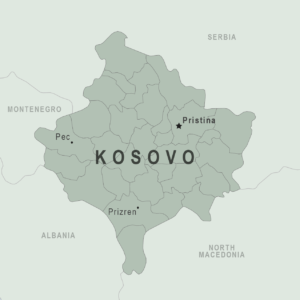 U.S.-Kosovo BOOK WORKSHOP
U.S.-Kosovo BOOK WORKSHOP
April 29, 2022, 9:00am-3:00pm
Sicilian Court, Scripps College
7C students, faculty and staff are welcome to join the conversation with experts on Kosovo from 1:00pm to 2:00pm at the Sicilian Court, Scripps College.
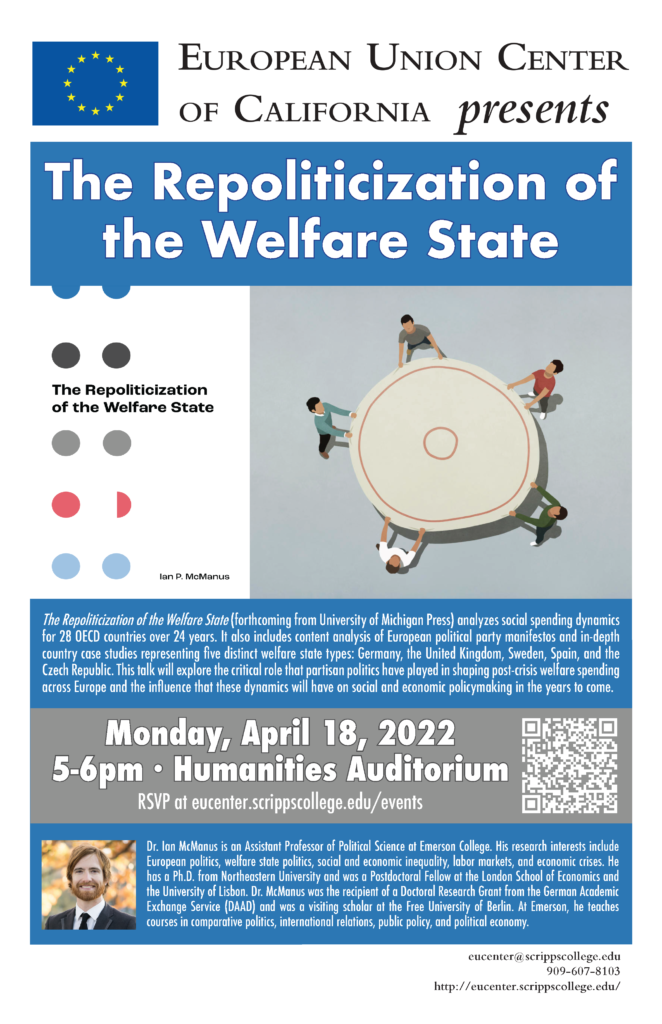 The Repoliticization of the Welfare State
The Repoliticization of the Welfare State
IAN MCMANUS, Emerson College
April 18, 2022, 5:00-6:00pm
Humanities Auditorium, Scripps College
The Repoliticization of the Welfare State (forthcoming from University of Michigan Press) is one of the first books to systematically compare European welfare state politics before and after the Great Recession arguing that a new and lasting post-crisis dynamic has emerged where political parties once again matter for social spending. At the heart of this repoliticization are intense ideological debates over market regulation, redistribution, inequality, and the role of the state.
The book analyzes social spending dynamics for 28 OECD countries over 24 years. It also includes content analysis of European political party manifestos and in-depth country case studies representing five distinct welfare state types: Germany, the United Kingdom, Sweden, Spain, and the Czech Republic. This talk will explore the critical role that partisan politics have played in shaping post-crisis welfare spending across Europe and the influence that these dynamics will have on social and economic policymaking in the years to come.
Dr. Ian McManus is an Assistant Professor of Political Science at Emerson College. His research interests include European politics, welfare state politics, social and economic inequality, labor markets, and economic crises. He has a Ph.D. from Northeastern University and was a Postdoctoral Fellow at the London School of Economics and the University of Lisbon. Dr. McManus was the recipient of a Doctoral Research Grant from the German Academic Exchange Service (DAAD) and was a visiting scholar at the Free University of Berlin. At Emerson, he teaches courses in comparative politics, international relations, public policy, and political economy.
 BOOK TALK: The Golden Ass
BOOK TALK: The Golden Ass
ELLEN FINKELPEARL, Scripps College (Professor Emerita)
April 14, 2022, 5:00-6:00pm
Margaret Fowler Garden, Scripps College
Scripps Professor Emerita Ellen Finkelpearl recently collaborated with the philosopher Peter Singer on a new volume of Apuleius. She will discuss the project and read excerpts from her translation. We’ll also be distributing copies of the book to the first 25 people who RSVP.
This event is co-sponsored with the Claremont Colleges Classics Department.
2022 Undergraduate Research Conference on the European Union Friday Keynote:
 Renaud Camus, Éric Zemmour, and the Great Replacement
Renaud Camus, Éric Zemmour, and the Great Replacement
ADAM ZIENTEK, University of California-Davis
April 8, 2022, 12:30-1:30pm (lunch starts at noon)
Jaqua Quadrangle Tent, Scripps College
The Great Replacement is a racist conspiracy theory that holds the super-rich elites of the 21st century seek to replace the white inhabitants of Europe with immigrants from Africa and the Middle East. It is, on the one hand, ludicrous and incredible; but it is, on the other hand, arguably the most powerful movement in the west against universal human rights in the 21st century—not only in Europe, but in America too, where the Great Replacement theory is a staple of right-wing media. I will consider in detail the work of the French thinker Renaud Camus, the global prophet of the Great Replacement theory and explain the nature of his theory. I will then proceed to discuss how the Great Replacement theory has influenced the political thought of one of France’s most important, prominent, and xenophobic contemporary political figures, Eric Zemmour, who is currently running for President and coming in third. I will conclude with some brief comments about the upcoming French presidential election.
Adam Zientek is Assistant Professor of History at the University of California Davis. Zientek is a historian of modern Europe with a focus on France. He is interested in the social history of war, the history of military medicine and psychiatry, and the history of alcohol and drugs. Professor Zientek’s research focuses on the experience of trench-fighting in the First World War. He investigates how soldiers mitigated the psychological pressures of fighting by analyzing soldiers’ daily practices and rituals. His current manuscript, Wine and Blood, considers the role that state-sponsored alcohol consumption had in shaping the French experience of the war. He is also interested in using recent research in the neurological and cognitive sciences to help historians make sense of human behavior in the past.
2022 Undergraduate Research Conference on the European Union Thursday Keynote:
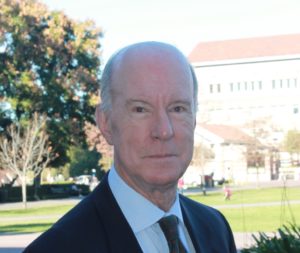 Europe at the Third Inflection Point
Europe at the Third Inflection Point
GREGORY TREVERTON, University of Southern California
April 7, 2022, 6:00-7:00pm (dinner starts at 5:30pm)
Margaret Fowler Garden, Scripps College
The last few years mark the third inflection point in global politics in the last half century, one tragically punctuated by the war in Ukraine. The previous two were the end of the Soviet Union and 9/11. Both of those seemed to come with a user’s guide, which wasn’t entirely right but wasn’t entirely wrong either. For this one, there is no guide, and applying labels like “new Cold War” is unhelpful in thinking about relations either with China or Russia.
The roots of the Ukraine war are a tangle including some “might have beens” – none of which, however, remotely justify Russia’s all-out, unprovoked attack. So far the hallmarks of the war have been Putin’s brutal miscalculation and the unity of what we used to call the “West.” That Europe and America joined quickly in responding firmly – with Germany moving further in two weeks than in previous decades – suggests new possibilities for a coalition of democracies. That the war was both bloody and illegitimate has forced fence-sitters to choose sides. Perhaps even China will come to realize that siding with Putin is to lose with a loser.
Gregory F. Treverton stepped down as Chair of the National Intelligence Council in January 2017. He is Chair, Global TechnoPolitics Forum and senior adviser to the Transnational Threats Project at the Center for Strategic and International Studies (CSIS) and a professor of the practice of international relations and Spatial Sciences at the University of Southern California. Earlier, he directed the RAND Corporation’s Center for Global Risk and Security and before that its Intelligence Policy Center and its International Security and Defense Policy Center. He has served in government for the first Senate Select Committee on Intelligence, the National Security Council and Vice Chair of the National Intelligence Council. He has taught at Harvard and Columbia universities, in addition to RAND, been a senior fellow at the Council on Foreign Relations, and deputy director of the International Institute for Strategic Studies in London. He holds an AB summa cum laude from Princeton University and an MPP (Master’s in Public Policy) and PhD in economics and politics from Harvard. His latest books are Telling Truth to Power: A History of the National Intelligence Council, (edited, with Robert Hutchings), Oxford University Press, 2019; and National Intelligence and Science: Beyond the Great Divide in Analysis and Policy, (with Wilhelm Agrell), Oxford University Press, 2015.
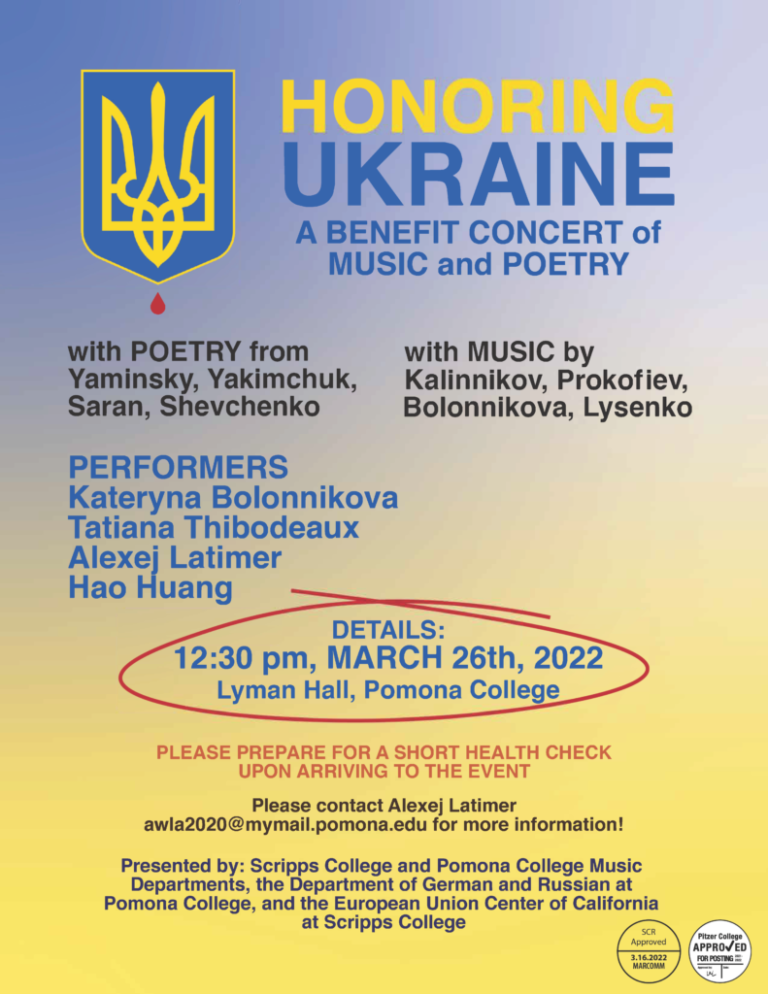 Honoring Ukraine: A Benefit Concert of Music and Poetry
Honoring Ukraine: A Benefit Concert of Music and Poetry
March 26, 2022, 12:30pm
Lyman Hall, Pomona College
with POETRY from Yaminsky, Yakimchuk, Saran, and Shevchenko
with MUSIC by Kalinnikov, Prokofiev, Bolonnikova, Lysenko
Organized jointly by Scripps College and Pomona College Music Departments, the Department of German and Russian at Pomona College, and the European Union Center of California at Scripps College
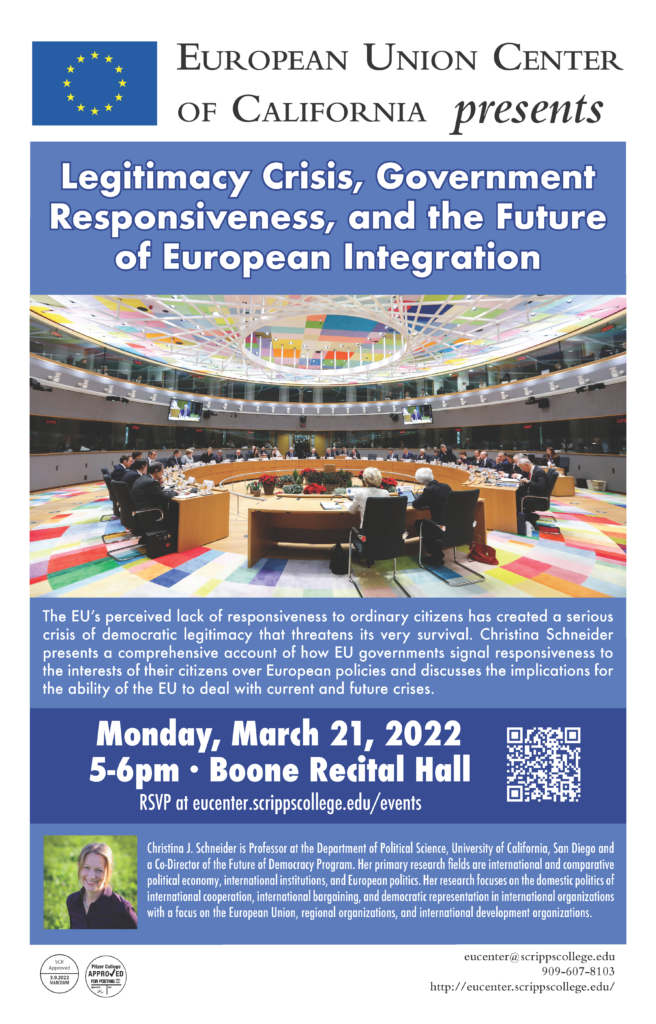 Legitimacy Crisis, Government Responsiveness, and the Future of European Integration
Legitimacy Crisis, Government Responsiveness, and the Future of European Integration
CHRISTINA SCHNEIDER
University of California – San Diego
March 21, 2022, 5:00-6:00pm
Boone Recital Hall, Performing Arts Center – Room 129, Scripps College
The EU’s perceived lack of responsiveness to ordinary citizens has created a serious crisis of democratic legitimacy that threatens its very survival. Christina Schneider presents a comprehensive account of how EU governments signal responsiveness to the interests of their citizens over European policies and discusses the implications for the ability of the EU to deal with current and future crises.
Christina J. Schneider is Professor at the Department of Political Science, University of California, San Diego and a Co-Director of the Future of Democracy Program. Her primary research fields are international and comparative political economy, international institutions, and European politics. Her research focuses on the domestic politics of international cooperation, international bargaining, and democratic representation in international organizations with a focus on the European Union, regional organizations, and international development organizations.
 Outlook From the Precipice: The Future of Ukraine and the European Project
Outlook From the Precipice: The Future of Ukraine and the European Project
MONICA EPPINGER
Saint Louis University
March 10, 2022, 12:15-1:15pm
via ZOOM
To view the recording of the lecture, click on the link below.
Learn more about the speaker here.
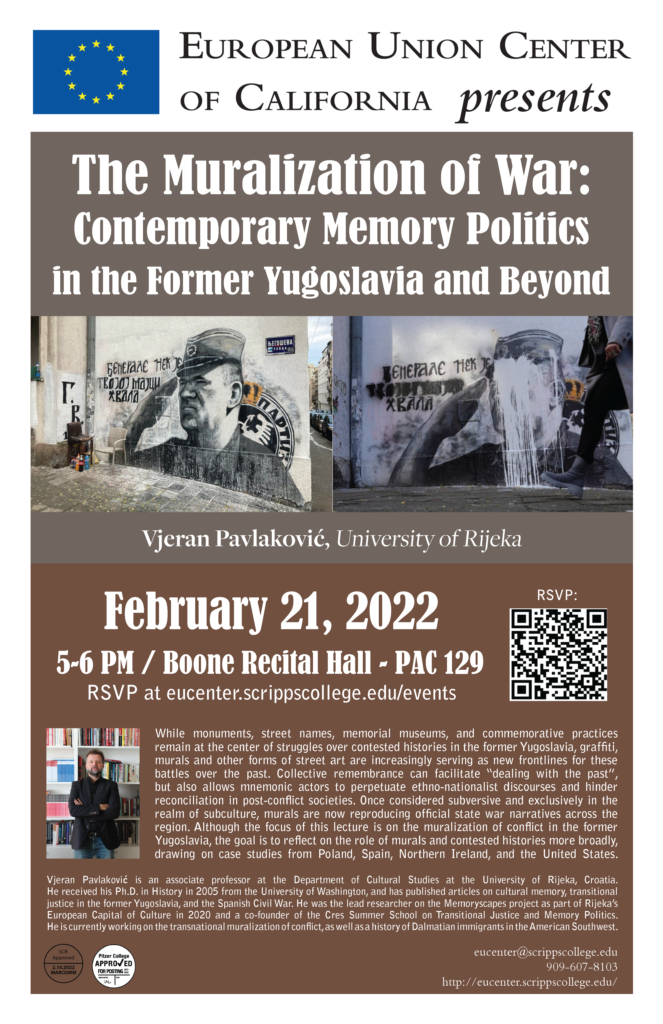 The Muralization of War: Contemporary Memory Politics in the Former Yugoslavia and Beyond
The Muralization of War: Contemporary Memory Politics in the Former Yugoslavia and Beyond
VJERAN PAVLAKOVIĆ
University of Rijeka
February 21, 2022, 5:00-6:00pm
Boone Recital Hall, Performing Arts Center – Room 129, Scripps College
OPEN TO STUDENTS, FACULTY & STAFF OF THE CLAREMONT COLLEGES ONLY
While monuments, street names, memorial museums, and commemorative practices remain at the center of struggles over contested histories in the former Yugoslavia, graffiti, murals and other forms of street art are increasingly serving as new frontlines for these battles over the past. Collective remembrance can facilitate “dealing with the past”, but also allows mnemonic actors to perpetuate ethno-nationalist discourses and hinder reconciliation in post-conflict societies. Once considered subversive and exclusively in the realm of subculture, murals are now reproducing official state war narratives across the region. Professor Vjeran Pavlaković’s research examines the impact this new form of memorialization has on post-Yugoslav societies thirty years after the conflict ended. Drawing on almost two decades of fieldwork on memoryscapes of war, this project seeks to understand how murals fit into the larger mosaic of mnemonic production: who is financing them, who is creating them, what is the legal framework for graffiti in public space, and what kind of typologies emerge when analyzing them across the region. While football Ultras (hooligans) have always been active in graffiti actions to demarcate territory and challenge rivals, in recent years this has shifted beyond tagging, vandalism, and radical right hate speech into aesthetically impressive murals that at times also function as semi-official sites of memory, indicating a troubling resurgence of nationalist politics intertwined with the aggressive street culture of disenchanted youth in the Yugoslav successor states. Although the focus of this lecture is on the muralization of conflict in the former Yugoslavia, the goal is to reflect on the role of murals and contested histories more broadly, drawing on case studies from Poland, Spain, Northern Ireland, and the United States.
Vjeran Pavlaković is an associate professor at the Department of Cultural Studies at the University of Rijeka, Croatia. He received his Ph.D. in History in 2005 from the University of Washington, and has published articles on cultural memory, transitional justice in the former Yugoslavia, and the Spanish Civil War. A Croatian edition of his co-edited volume Framing the Nation and Collective Identity in Croatia (Routledge, 2019) will be published later this year, and other recent publications include “The Legacy of War and Nation-Building in Croatia since 1990,” in Balkan Legacies: The Long Shadow of Conflict and Ideological Experiment in Southeastern Europe (Purdue UP, 2021), and “Memory Politics in the Former Yugoslavia” in Yearbook of the Institute of East-Central Europe (2020). He was the lead researcher on the Memoryscapes project as part of Rijeka’s European Capital of Culture in 2020 and a co-founder of the Cres Summer School on Transitional Justice and Memory Politics. He is currently working on the transnational muralization of conflict, as well as a history of Dalmatian immigrants in the American Southwest.
 The Rule of Law Crisis in the EU
The Rule of Law Crisis in the EU
ANDREJ AUERSPERGER MATIĆ, European Parliament Liaison Office, Washington DC
November 29, 2021, 12:15-1:15pm
Via ZOOM
In the last few years, the EU has experienced a number of challenges to the authority of its constitutional order. Most critically, the Polish and Hungarian governments began to openly disregard decisions made by EU institutions, and embarked on a process of curtailing certain liberties and engaging in flagrant interference in the independence of their judicial systems. These challenges have received both a political and a legal response, which culminated in the summer and fall of 2021, when the European Court of Justice imposed a fine of one million Euro per day on Poland for not respecting earlier decisions of the Court. The stalemate still has to be resolved, and it is difficult to see a clear way out that would not seriously harm the credibility of either the EU or the recalcitrant states. The talk will shed light on the background of the rule of law crisis and explain the political and legal considerations involved.
Andrej Auersperger Matić is the Legal Adviser to the European Parliament Liaison Office in Washington, DC. His responsibilities include advising on legal issues in EU-US relations, establishing contacts with Congress in the relevant areas and outreach to think tanks, academia and stakeholders. In his present role, he focuses mainly on digital regulation and competition, EU-US trade relations and human rights. Previous experience includes advisory and litigation work, as Member of the European Parliament Legal Service, in the fields of external relations law of the European Union and international law (international trade agreements, EU trade legislation, development policy, investment protection issues and other topics) and in the area of justice and civil liberties (EU civil and criminal justice legislation, PNR agreements, data retention). He was involved in litigation before the courts of the European Union in fourteen cases and in numerous legislative negotiations with the European Commission and the Council of Ministers. Before working for the European Parliament, Andrej was a legal officer at the European Court of Human Rights, and a research/teaching assistant at the University of Ljubljana, Slovenia. Andrej holds a law degree and a master’s degree from the University of Ljubljana, an LL.M from the Yale Law School and a PhD from Maastricht University. His doctoral thesis discusses the rule of law and the effectiveness of civil justice in the case law of the European Court of Human Rights. His academic activities include regular lectures and presentations on EU law, trade and investment issues and human rights law at universities in Slovenia, Croatia, Bosnia, Belgium and the United States. In 2016-2017, he visited the United States in the framework of the European Commission Fellowship at the German Marshall Fund in Washington D.C.
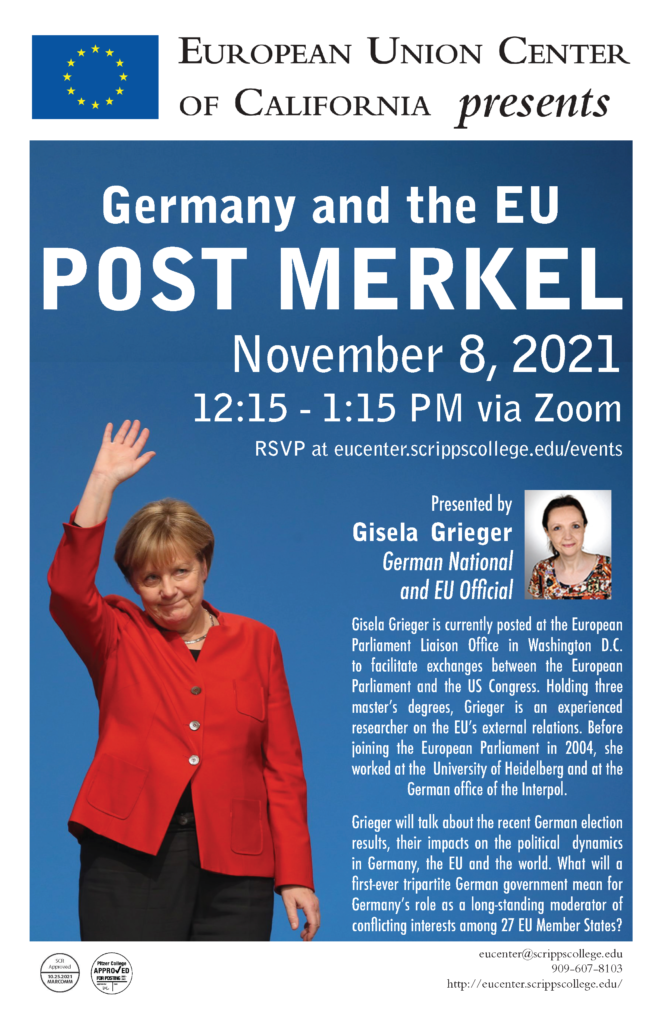 Germany and the EU Post Merkel
Germany and the EU Post Merkel
GISELA GRIEGER, European Parliament Liaison Office, Washington DC
November 8, 2021, 12:15-1:15pm
Via ZOOM
Gisela Grieger is currently posted at the European Parliament Liaison Office in Washington D.C. to facilitate exchanges between the European Parliament and the US Congress. Holding three master’s degrees, Grieger is an experienced researcher on the EU’s external relations. Before joining the European Parliament in 2004, she worked at the University of Heidelberg and at the German office of the Interpol. In her talk, she will address the recent German election results and discuss what a first-ever tripartite German government may mean for Germany’s role as a long-standing moderator of conflicting interests among 27 EU Member States.
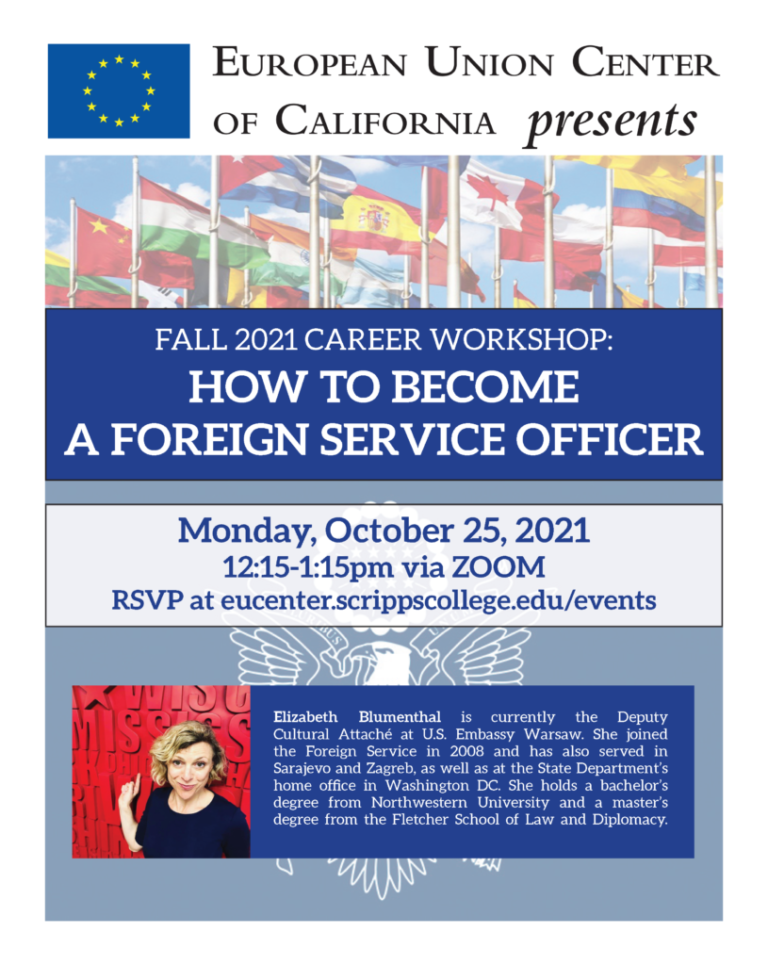 Fall Career Workshop: HOW TO BECOME A FOREIGN SERVICE OFFICER
Fall Career Workshop: HOW TO BECOME A FOREIGN SERVICE OFFICER
with ELIZABETH BLUMENTHAL, U.S. Department of State
October 25, 2021, 12:15-1:15pm
Via ZOOM
For students of the Claremont Colleges only.
ELIZABETH BLUMENTHAL is currently the Deputy Cultural Attaché at U.S. Embassy Warsaw. She joined the Foreign Service in 2008 and has also served in Sarajevo and Zagreb, as well as at the State Department’s home office in Washington DC. She holds a bachelor’s degree from Northwestern University and a master’s degree from the Fletcher School of Law and Diplomacy.
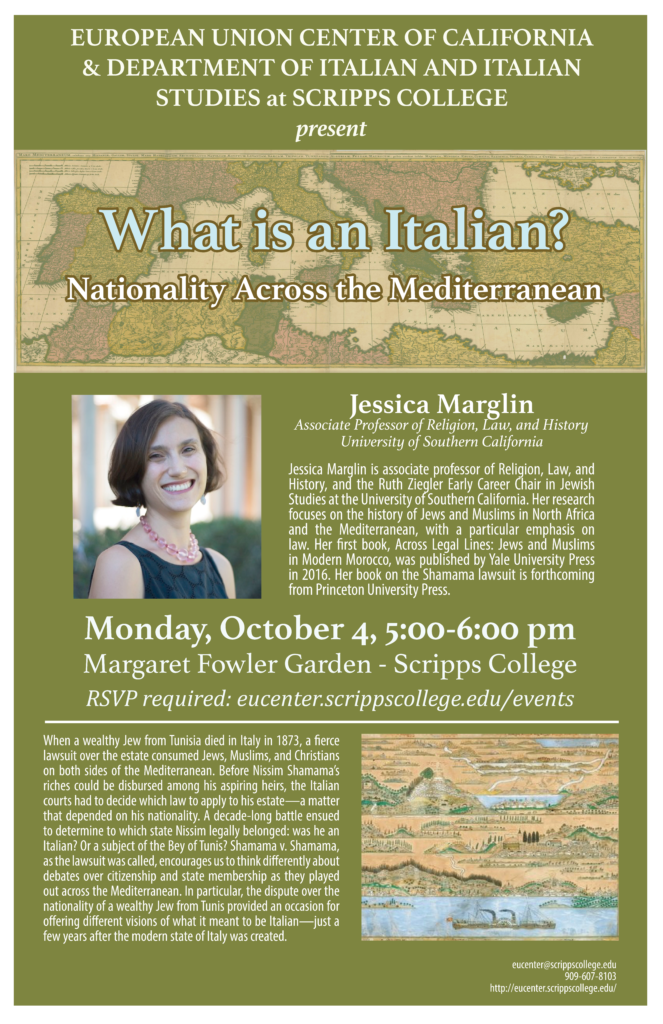 What is an Italian? Nationality Across the Mediterranean
What is an Italian? Nationality Across the Mediterranean
JESSICA MARGLIN
University of Southern California
October 4, 2021, 5:00-6:00pm
Margaret Fowler Garden, Scripps College
OPEN TO STUDENTS, FACULTY & STAFF OF THE CLAREMONT COLLEGES ONLY
When a wealthy Jew from Tunisia died in Italy in 1873, a fierce lawsuit over the estate consumed Jews, Muslims, and Christians on both sides of the Mediterranean. Before Nissim Shamama’s riches could be disbursed among his aspiring heirs, the Italian courts had to decide which law to apply to his estate—a matter that depended on his nationality. A decade-long battle ensued to determine to which state Nissim legally belonged: was he an Italian? Or a subject of the Bey of Tunis? Shamama v. Shamama, as the lawsuit was called, encourages us to think differently about debates over citizenship and state membership as they played out across the Mediterranean. In particular, the dispute over the nationality of a wealthy Jew from Tunis provided an occasion for offering different visions of what it meant to be Italian—just a few years after the modern state of Italy was created.
Jessica Marglin is associate professor of Religion, Law, and History, and the Ruth Ziegler Early Career Chair in Jewish Studies at the University of Southern California. Her research focuses on the history of Jews and Muslims in North Africa and the Mediterranean, with a particular emphasis on law. Her first book, Across Legal Lines: Jews and Muslims in Modern Morocco, was published by Yale University Press in 2016. Her book on the Shamama lawsuit is forthcoming from Princeton University Press.
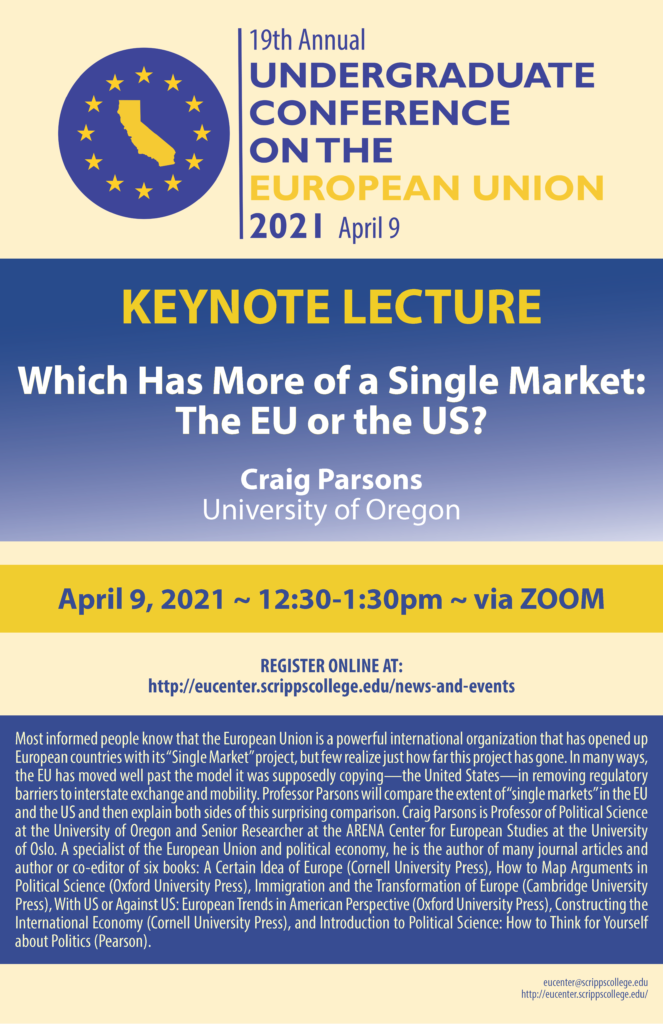 2021 Undergraduate Conference on the European Union Keynote Lecture:
2021 Undergraduate Conference on the European Union Keynote Lecture:
WHICH HAS MORE OF A SINGLE MARKET: THE EU OR THE US?
CRAIG PARSONS, University of Oregon
April 9, 2021, 12:30-1:30pm
Via ZOOM
To view the recording of the lecture, click on the link below.
Most informed people know that the European Union is a powerful international organization that has opened up European countries with its “Single Market” project, but few realize just how far this project has gone. In many ways, the EU has moved well past the model it was supposedly copying—the United States—in removing regulatory barriers to interstate exchange and mobility. Professor Parsons will compare the extent of “single markets” in the EU and the US and then explain both sides of this surprising comparison.
Craig Parsons is Professor of Political Science at the University of Oregon and Senior Researcher at the ARENA Center for European Studies at the University of Oslo. A specialist of the European Union and political economy, he is the author of many journal articles and author or co-editor of six books: A Certain Idea of Europe (Cornell University Press), How to Map Arguments in Political Science (Oxford University Press), Immigration and the Transformation of Europe (Cambridge University Press), With US or Against US: European Trends in American Perspective (Oxford University Press), Constructing the International Economy (Cornell University Press), and Introduction to Political Science: How to Think for Yourself about Politics (Pearson).
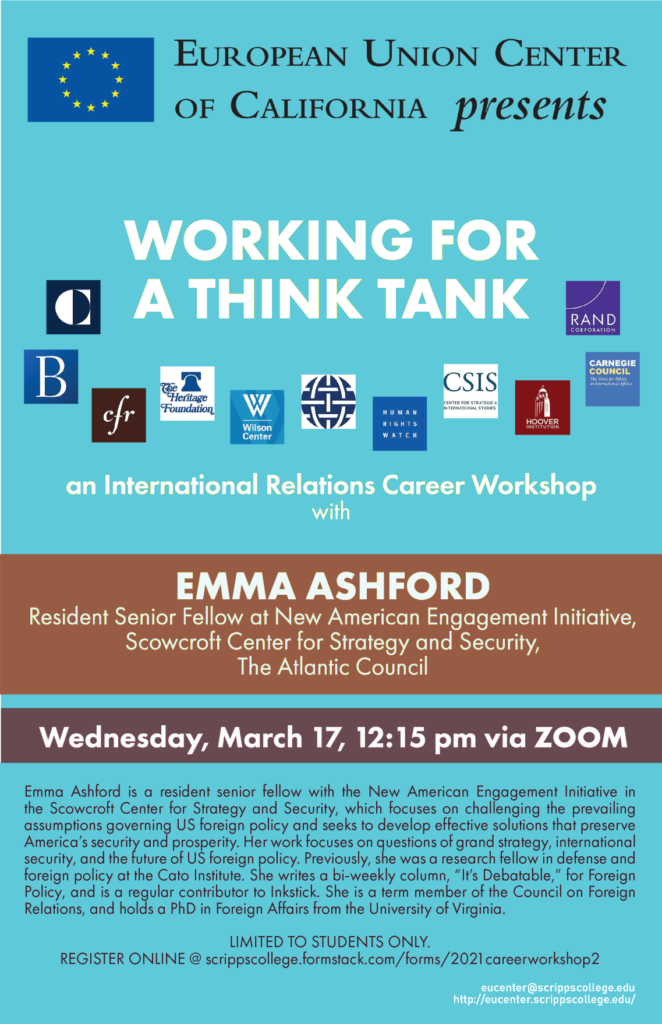 Spring Career Workshop Series:
Spring Career Workshop Series:
WORKING FOR A THINK TANK
with EMMA ASHFORD, Resident Senior Fellow, New American Engagement Initiative, Scowcroft Center for Strategy and Security, Atlantic Council
March 17, 2021, 12:15-1:15pm
Via ZOOM
Emma Ashford is a resident senior fellow with the New American Engagement Initiative in the Scowcroft Center for Strategy and Security, which focuses on challenging the prevailing assumptions governing US foreign policy and seeks to develop effective solutions that preserve America’s security and prosperity. Her work focuses on questions of grand strategy, international security, and the future of US foreign policy. Previously, she was a research fellow in defense and foreign policy at the Cato Institute. She writes a bi-weekly column, “It’s Debatable,” for Foreign Policy, and is a regular contributor to Inkstick. She is a term member of the Council on Foreign Relations, and holds a PhD in Foreign Affairs from the University of Virginia.
For students only. Limited to 15 participants.
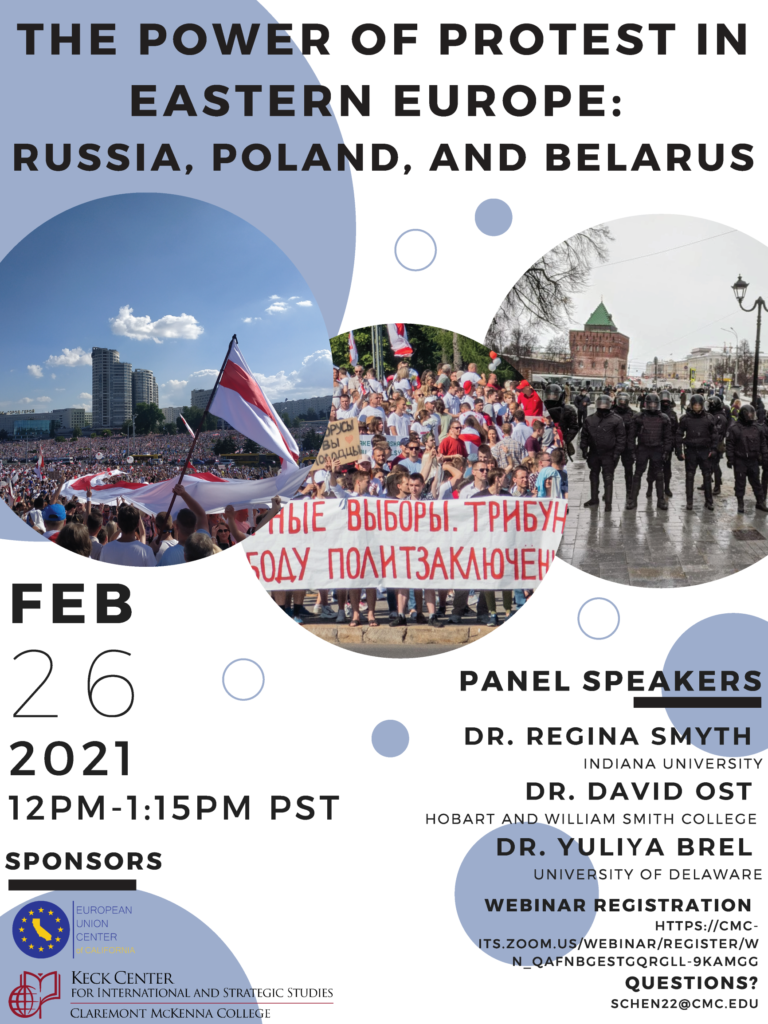 The Power of Protest in Eastern Europe: Russia, Poland, and Belarus
The Power of Protest in Eastern Europe: Russia, Poland, and Belarus
Regina Smyth, Indiana University
David Ost, Hobart and William Smith College
Yuliya Brel, University of Delaware
February 26, 2021, 12:00-1:15pm
Via ZOOM
View the recording of the webinar HERE
A panel of experts will discuss the recent and ongoing mass protests in three Eastern European countries: protests against the Belarusian government and President Alexander Lukashenko; protests against judicial reforms and abortion restrictions in Poland; and pro-Alexei Navalny protests in Russia.
This event is organized in partnership with the Keck Center for International and Strategic Studies at Claremont McKenna College.
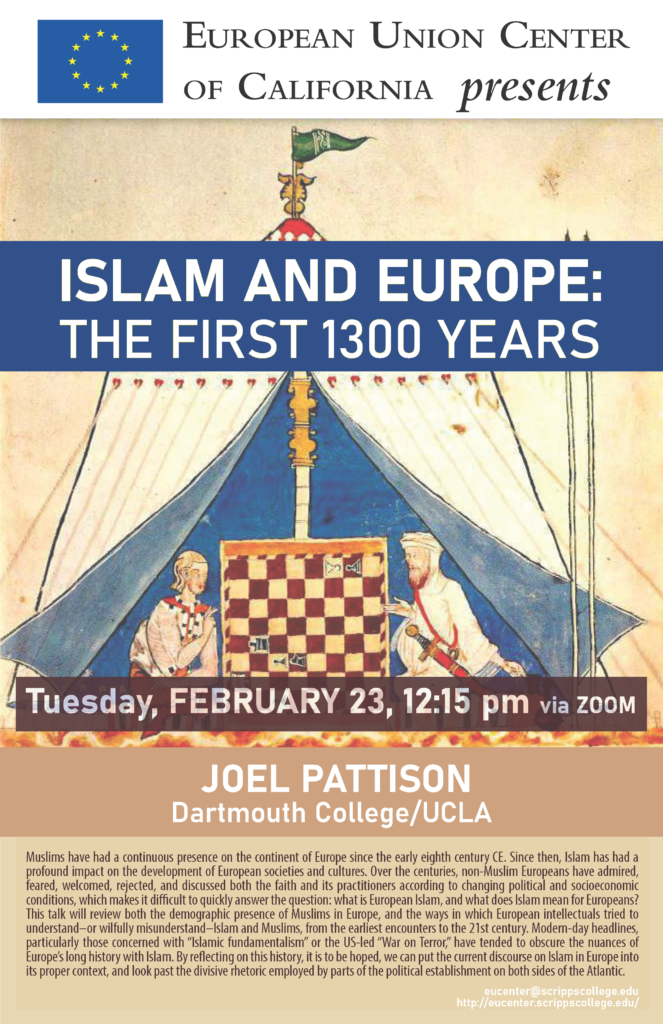 Islam and Europe: the First 1300 Years
Islam and Europe: the First 1300 Years
Joel Pattison
Dartmouth College/UCLA
February 23, 2021, 12:15-1:15pm
Via ZOOM
Muslims have had a continuous presence on the continent of Europe since the early eighth century CE. Since then, Islam has had a profound impact on the development of European societies and cultures. Over the centuries, non-Muslim Europeans have admired, feared, welcomed, rejected, and discussed both the faith and its practitioners according to changing political and socioeconomic conditions, which makes it difficult to quickly answer the question: what is European Islam, and what does Islam mean for Europeans? This talk will review both the demographic presence of Muslims in Europe, and the ways in which European intellectuals tried to understand–or willfully misunderstand–Islam and Muslims, from the earliest encounters to the twenty-first century. Modern-day headlines, particularly those concerned with “Islamic fundamentalism” or the US-led “War on Terror,” have tended to obscure the nuances of Europe’s long history with Islam. By reflecting on this history, it is to be hoped, we can put the current discourse on Islam in Europe into its proper context, and look past the divisive rhetoric employed by parts of the political establishment on both sides of the Atlantic.
Joel Pattison is a historian of the medieval Mediterranean, particularly of trade and religion in medieval Italy and the Maghrib. He received his undergraduate degree in history from Yale University, and his PhD in History from UC Berkeley. In 2019-20, he was a Fellow in Medieval Studies at the American Academy in Rome, and he is currently a visiting Scholar at Dartmouth College and a Visiting Lecturer at UCLA. He is currently working on a book about Genoese merchants in the Maghrib.
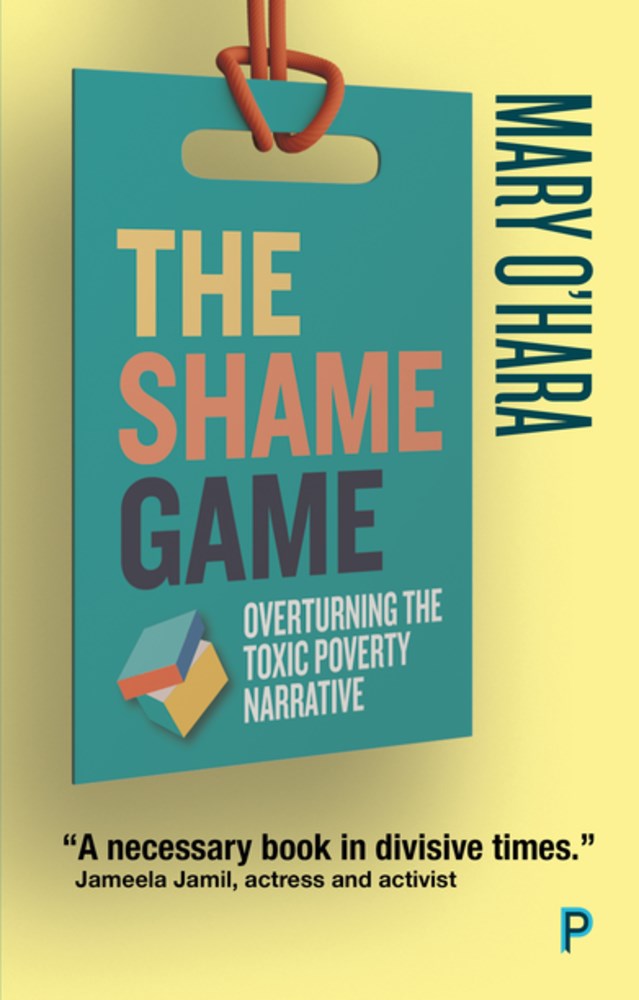 The Shame Game
The Shame Game
Mary O’Hara
Journalist/Author
February 10, 2021, 10:00-11:30am
Via ZOOM
What does it mean to be poor in Britain and America? For decades, the primary narrative about poverty in both countries is that it has been caused by personal flaws or “bad life decisions” rather than policy choices or economic inequality. This misleading account has become deeply embedded in the public consciousness with serious ramifications for how financially vulnerable people are seen, spoken about, and treated. Drawing on a two-year multi-platform initiative, award-winning journalist and author Mary O’Hara, author of The Shame Game: Overturning the Toxic Poverty Narrative, asks how we can overturn this portrayal once and for all. Crucially, she turns to the real experts to try to find answers—the people who live it.
This program is presented in partnership with Scripps Presents, the IDEA Initiative, and Scripps International Community (SIC).
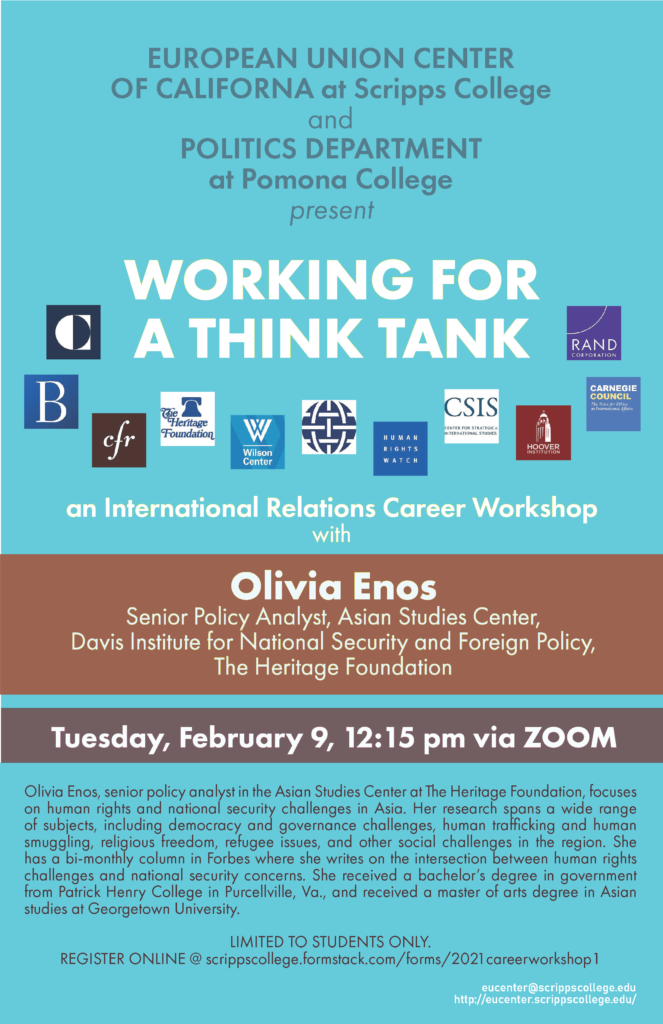 Spring Career Workshop Series:
Spring Career Workshop Series:
WORKING FOR A THINK TANK
with OLIVIA ENOS, Senior Policy Analyst, Asian Studies Center, Davis Institute for National Security and Foreign Policy, The Heritage Foundation
February 9, 2021, 12:15-1:15pm
Via ZOOM
Co-hosted with Politics Department, Pomona College
Olivia Enos, senior policy analyst in the Asian Studies Center at The Heritage Foundation, focuses on human rights and national security challenges in Asia. Her research spans a wide range of subjects, including democracy and governance challenges, human trafficking and human smuggling, religious freedom, refugee issues, and other social challenges in the region. She has a bi-monthly column in Forbes where she writes on the intersection between human rights challenges and national security concerns. She received a bachelor’s degree in government from Patrick Henry College in Purcellville, Va., and received a master of arts degree in Asian studies at Georgetown University.
For students only. Limited to 15 participants. Registration is now closed.
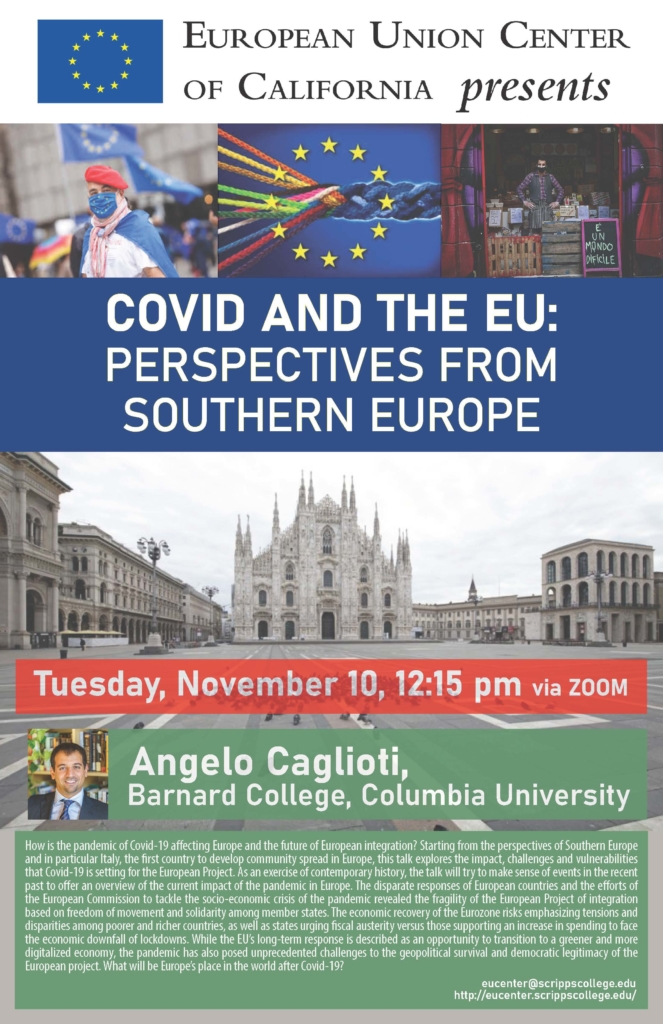 Covid and the EU: Perspectives From Southern Europe
Covid and the EU: Perspectives From Southern Europe
Angelo Caglioti
Barnard College, Columbia University
November 10, 2020, 12:15-1:15pm
Via ZOOM
How is the pandemic of Covid-19 affecting Europe and the future of European integration? Starting from the perspectives of Southern Europe and in particular Italy, the first country to develop community spread in Europe, this talk explores the impact, challenges and vulnerabilities that Covid-19 is setting for the European Project. As an exercise of contemporary history, the talk will try to make sense of events in the recent past to offer an overview of the current impact of the pandemic in Europe. The disparate responses of European countries and the efforts of the European Commission to tackle the socio-economic crisis of the pandemic revealed the fragility of the European Project of integration based on freedom of movement and solidarity among member states. The economic recovery of the Eurozone risks emphasizing tensions and disparities among poorer and richer countries, as well as states urging fiscal austerity versus those supporting an increase in spending to face the economic downfall of lockdowns. While the EU’s long-term response is described as an opportunity to transition to a greener and more digitalized economy, the pandemic has also posed unprecedented challenges to the geopolitical survival and democratic legitimacy of the European project. What will be Europe’s place in the world after Covid-19?
Angelo Caglioti is Assistant Professor of European History at Barnard College, Columbia University. He holds a Laurea from the University of Padua and a Ph.D. from the University of California, Berkeley in 2017. He has been a Max Weber Fellow at the European University Institute in Florence (Italy), a Carson Fellow at the Rachel Carson Center for Environment and Society in Munich (Germany), and a Rome Prize Fellow in Modern Italian Studies at the American Academy in Rome. His research interests include late modern European history, environmental history, and the history of science, with a particular focus on Italy and the history of Fascism in the twentieth century.
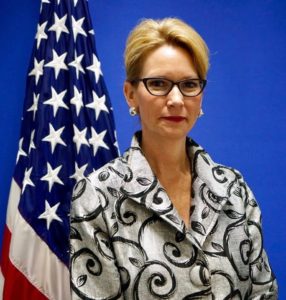 Fall Career Workshop Series: Meet Director of Office of Foreign Missions, Los Angeles Office
Fall Career Workshop Series: Meet Director of Office of Foreign Missions, Los Angeles Office
with GRETCHEN FRANKE, U.S. Department of State
October 20, 2021, 12:15-1:15pm
Via ZOOM
For students only. Limited to 15 participants.
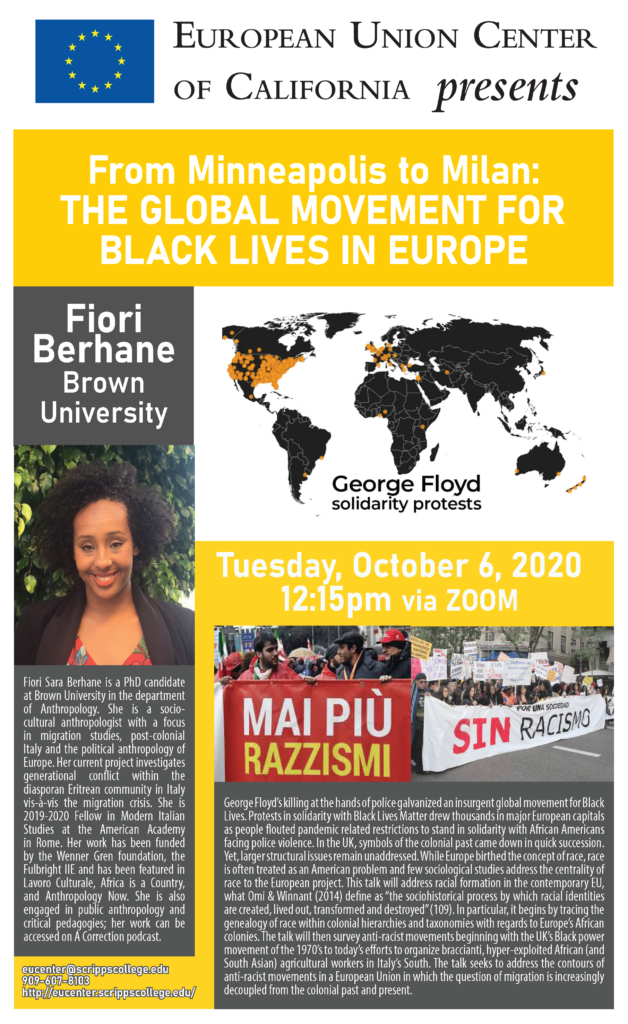 From Minneapolis to Milan: The Global Movement for Black Lives in Europe
From Minneapolis to Milan: The Global Movement for Black Lives in Europe
Fiori Berhane
Brown University
October 6, 2020, 12:15-1:15pm
Via ZOOM
George Floyd’s killing at the hands of police galvanized an insurgent global movement for Black Lives. Protests in solidarity with Black Lives Matter drew thousands in major European capitals as people flouted pandemic related restrictions to stand in solidarity with African Americans facing police violence. In the UK, symbols of the colonial past came down in quick succession. Yet, larger structural issues remain unaddressed. While Europe birthed the concept of race, race is often treated as an American problem and few sociological studies address the centrality of race to the European project. This talk will address racial formation in the contemporary EU, what Omi & Winnant (2014) define as “the sociohistorical process by which racial identities are created, lived out, transformed and destroyed” (109). In particular, it begins by tracing the genealogy of race within colonial hierarchies and taxonomies with regards to Europe’s African colonies. The talk will then survey anti-racist movements beginning with the UK’s Black power movement of the 1970’s to today’s efforts to organize braccianti, hyper-exploited African (and South Asian) agricultural workers in Italy’s South. The talk seeks to address the contours of anti-racist movements in a European Union in which the question of migration is increasingly decoupled from the colonial past and present.
Fiori Sara Berhane is a PhD candidate at Brown University in the department of Anthropology. She is a socio-cultural anthropologist with a focus in migration studies, post-colonial Italy and the political anthropology of Europe. Her current project investigates generational conflict within the diasporan Eritrean community in Italy vis-à-vis the migration crisis. She is 2019-2020 Fellow in Modern Italian Studies at the American Academy in Rome. Her work has been funded by the Wenner Gren foundation, the Fulbright IIE and has been featured in Lavoro Culturale, Africa is a Country, and Anthropology Now. She is also engaged in public anthropology and critical pedagogies; her work can be accessed on A Correction podcast.
How Societies and States Count
Rebecca Emigh
UCLA
September 22, 2020, 12:15-1:15pm
Via ZOOM
Censuses are of course, accomplishments of states. Or are they? This talk will discuss how censuses are strongly affected by social actors in three ways. First, lay categories shape the format and content of census categories. Second, social actors reformulate these lay categories and pressure state actors to implement them in censuses. Third, the power dynamics among social and state actors shapes where and when state actors take up social actors demands for categories. These points are illustrated by censuses in the United States, Italy, and the United Kingdom historically and by the current debate over the citizenship question in the US census.
Rebecca Jean Emigh is Professor of Sociology at UCLA. She received her Ph.D. from the University of Chicago. She is a comparative/historical sociologist who studies long-term social change. She is the author of many articles and several books on censuses, historical demography, transitions to capitalism, and sociological theory and methods. She is currently working on the racialization and gendering of classical music in the United States in the twentieth century and the relationship between orality and literacy historically in the news, academia, and music.
 Fall Career Workshop Series: Meet an FSO
Fall Career Workshop Series: Meet an FSO
with ERIN ROBERTSON, U.S. Department of State
September 15, 2021, 12:15-1:15pm
Via ZOOM
For students only. Limited to 15 participants. Registration for this event is now closed.
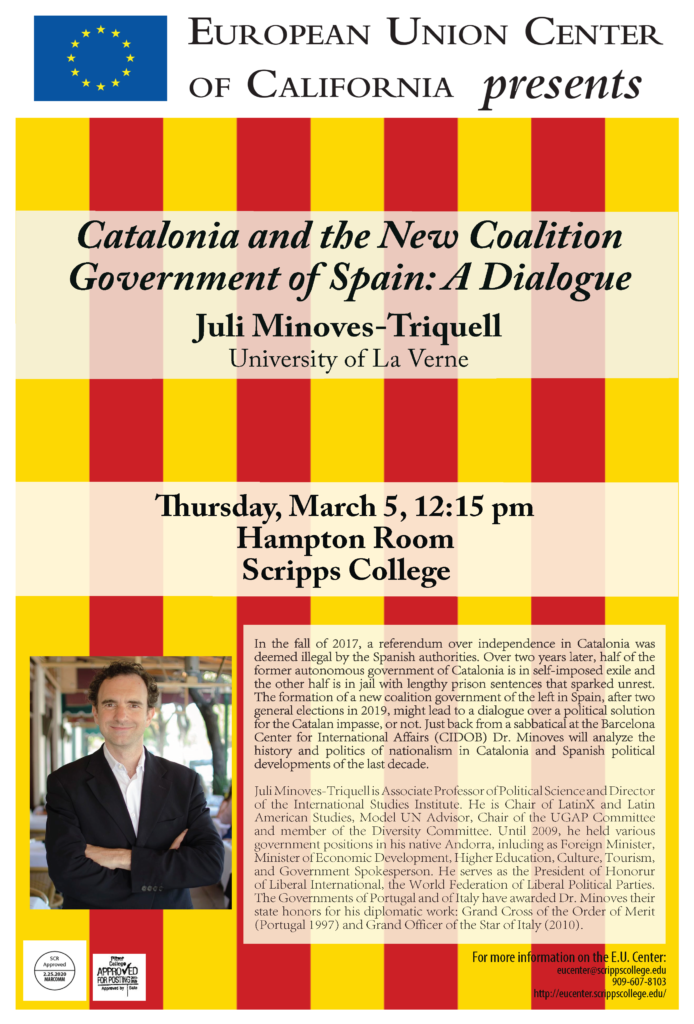 Catalonia and the New Coalition Government of Spain: A Dialogue
Catalonia and the New Coalition Government of Spain: A Dialogue
Juli Minoves-Triquell
University of La Verne
March 5, 2020, 12:15-1:15pm
Hampton Room, Scripps College
In the fall of 2017 a referendum over independence in Catalonia was deemed illegal by the Spanish authorities. Over two years later half of the former autonomous government of Catalonia is in self-imposed exile and the other half is in jail with lengthy prison sentences that sparked unrest. The formation of a new coalition government of the left in Spain, after two general elections in 2019, might lead to a dialogue over a political solution for the Catalan impasse, or not. Just back from a sabbatical at the Barcelona Center for International Affairs (CIDOB) Dr. Minoves will analyze the history and politics of nationalism in Catalonia and Spanish political developments of the last decade.
Dr. Minoves is Associate Professor of Political Science and Director of the International Studies Institute at the University of La Verne, California, and has been a visiting professor at the Institut d’Etudes Politiques de Paris and at the Barcelona Centre for International Affairs. Dr. Minoves teaches courses in Comparative Politics, European Politics, Comparative Foreign Policy, Model UN, Monarchy, Latin American Politics and International Organizations. He is also currently the Chair of the LatinX and Latin American Studies Program at ULV. Dr. Minoves has an undergraduate degree in Economics from the University of Fribourg (Switzerland), and two Master Degrees and a Ph. D. with distinction in Political Science from Yale University. He was the Foreign Minister of Andorra from 2001 to 2007, and Minister of Economic Development, Tourism, Culture and Universities, as well as Spokesman of the Government from 2007 to 2009. He had previously served as the first Ambassador Permanent Representative of Andorra to the United Nations in New York. During this period he had also been accredited as Ambassador to the United States and to Canada. In 1998 he was appointed as Ambassador of Andorra to the Kingdom of Spain, with concurrent accreditations to the United Kingdom, to Switzerland to Finland and Permanent Observer to the World Trade Organization. As Foreign Minister he negotiated the various 2004 agreements between Andorra and the European Union. He also made his country a member of the Iberian American Summit Meetings as well as the International Organization of the Francophonie and of the Union Latine. Dr. Minoves was elected 13th President of Liberal International (LI), the World Federation of Liberal Parties (founded at Oxford U. in 1947) in April of 2014 in Rotterdam, after almost a decade as an elected member of the LI Bureau. He was reelected President twice and ended his third and final term in December 2018 in Dakar. The LI Congress in Dakar appointed him President of Honour of Liberal International. The Governments of Portugal and of Italy have awarded Dr. Minoves their state honors for his diplomatic work: Grand Cross of the Order of Merit (Portugal 1997) and Grand Officer of the Star of Italy (2010).
 Is Brexit the Catalyst for Irish Unification?
Is Brexit the Catalyst for Irish Unification?
Reece Smyth
US Department of State / Hoover Institution at Stanford University
February 18, 2020, 12:15-1:15pm
Humanities Museum, Scripps College
Has Brexit set in motion a process that will ultimately led to the unraveling of the UK? Has Boris Johnson’s Withdrawal Agreement pushed Northern Ireland closer to Ireland economically and by extension further away from the UK?
The 2016 Brexit referendum threw the UK’s closest neighbor and EU partner into an existential crisis. It also shut down power sharing institutions in Northern Ireland for three years. Ireland has devoted enormous diplomatic capital and prestige into forging a EU position in support of Ireland’s Brexit Withdrawal Agreement position and any permanent divisions of the island. This talk will examine the future of Brexit and its implications for Ireland, both North and South, and the prospects for Irish unification. A former U.S. Charge d’Affaires in Dublin will look at Boris Johnson’s resounding victory and the implications for the negotiations on the long-term UK/EU relationship. He will also discuss U.S. interests and the effects on the Good Friday Agreement.
Reece Smyth, representing the US Department of State, is a National Security Affairs Fellow for the academic year 2019–20 at the Hoover Institution. A career member of the Senior Foreign Service, Reece served as Chargé d’Affaires ad interim at the US Embassy in Dublin from January 2017 to July 2019, where he advanced US bilateral relations with Ireland on trade, investment, and cyber security. Previous assignments include as the political counselor at the US Embassy in Beirut and the deputy director of the State Department’s Office of UN Political Affairs. Reece also served at the US Mission to NATO as the action officer in the NATO-Russia Council, as senior economic officer in the State Department’s Office of Arabian Peninsula Affairs, and as a watch officer in the Operations Center. Other overseas tours include Skopje, Sarajevo, and Islamabad.
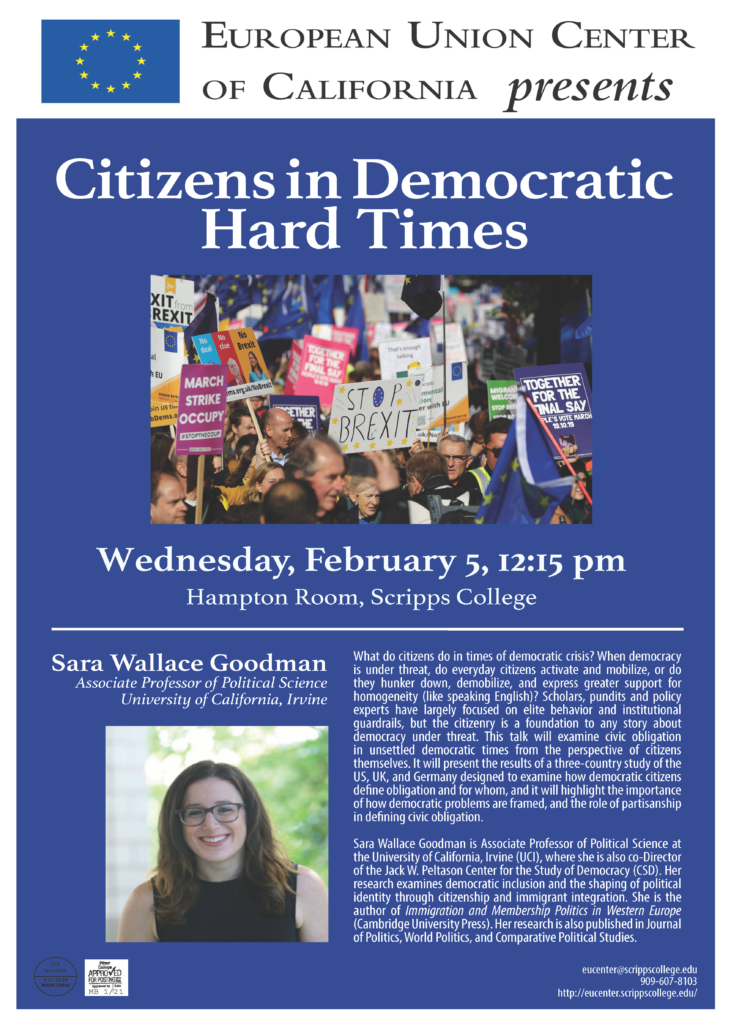 Citizens in Democratic Hard Times
Citizens in Democratic Hard Times
Sara Wallace Goodman
University of California, Irvine
February 5, 2020, 12:15-1:15pm
Hampton Room, Scripps College
What do citizens do in times of democratic crisis? When democracy is under threat, do everyday citizens activate and mobilize, or do they hunker down, demobilize, and express greater support for homogeneity (like speaking English)? Scholars, pundits and policy experts have largely focused on elite behavior and institutional guardrails, but the citizenry is a foundation to any story about democracy under threat. This talk will examine civic obligation in unsettled democratic times from the perspective of citizens themselves. It will present the results of a three-country study of the US, UK, and Germany designed to examine how democratic citizens define obligation and for whom, and it will highlight the importance of how democratic problems are framed, and the role of partisanship in defining civic obligation.
Sara Wallace Goodman is Associate Professor of Political Science at the University of California, Irvine (UCI), where she is also co-Director of the Jack W. Peltason Center for the Study of Democracy (CSD). Her research examines democratic inclusion and the shaping of political identity through citizenship and immigrant integration. She is the author of Immigration and Membership Politics in Western Europe (Cambridge University Press). Her research is also published in Journal of Politics, World Politics, and Comparative Political Studies.
Good Bye, Lenin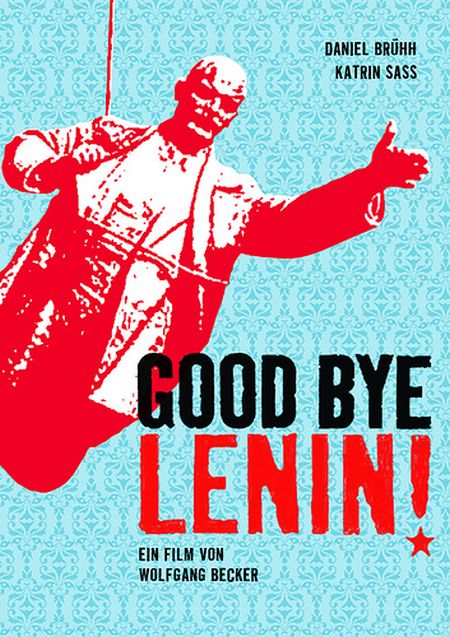
Comedy/Drama (R)
December 5, 2019, 7pm
Humanities Auditorium, Scripps College
In October 1989, right before the fall of the Berlin Wall, Alex Kerner (Daniel Brühl) is living with his mom, Christiane (Kathrin Sass), and sister, Ariane (Maria Simon). But when the mother, a loyal party member, sees Alex participating in an anti-communist rally, she falls into a coma and misses the revolution. After she wakes, doctors say any jarring event could make her have a heart attack, meaning the family must go to great lengths to pretend communism still reigns in Berlin.
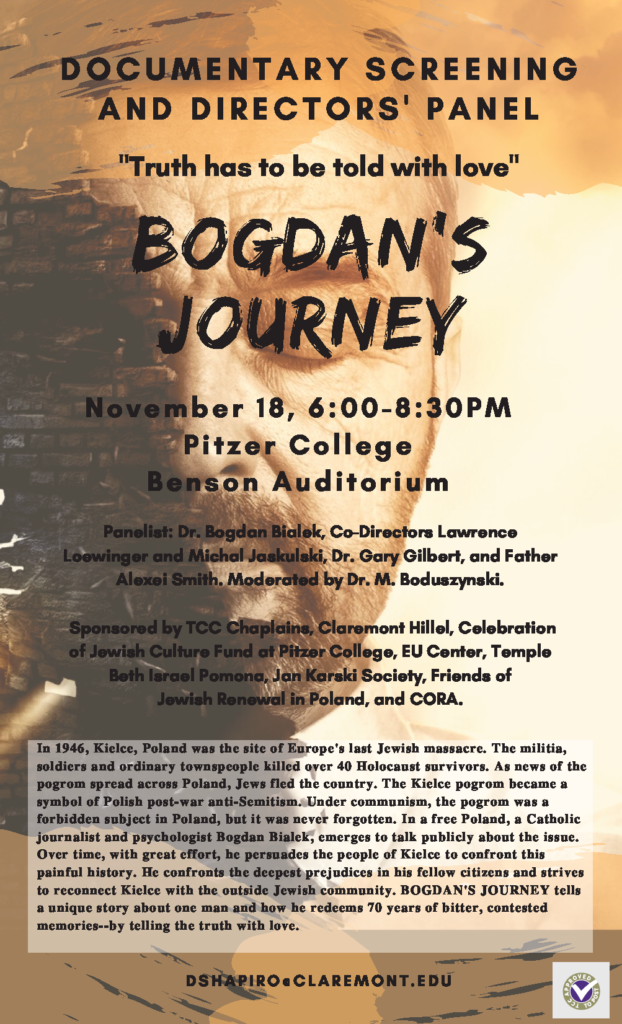 Bogdan’s Journey
Bogdan’s Journey
Documentary
November 18, 2019, 6pm
Benson Auditorium, Pitzer College / Co-sponsored with CMC and CORA
A Catholic Pole, determined to heal a historical wound, launches a crusade to reconcile Poles and Jews over a massacre that happened 70 years ago.
Dr. Bogdan Bialek is a pathbreaking communal leader, psychologist, publisher, and moral exemplar. The movie Bogdan’s Journey tells of his remarkable educational and reconciliation effort to address the events of July 4, 1946 murders (pogrom) in Kielce, Poland. The Kielce pogrom began with a blood libel and led to 45 deaths of Holocaust survivors. The controversy around those events continues to this day.
The film covers the period of ten years in which Bialek created a coalition of Poland’s leaders, teachers, and ordinary citizens to foster public discussions, memorials, and educational encounters. Bialek’s efforts reflect a period of historical reckoning that is taking place in Europe and especially in Poland with the publication of Jan Gross’ Fear. Fear: Antisemitism in Poland After Auschwitz – An Essay in Historical Interpretation was accused of sullying “the good name of Poland.”
The work of the film has led to the founding of a permanent exhibit in the building where the pogrom took place along with a series of seminars for high school teachers to address antisemitism and xenophobia. Dr. Bogdan’s efforts are seen as treasonous by some but by others as clearing a path for historical accuracy and acknowledgment. Dr. Bielek’s leadership as a journalist and practicing Catholic are part of the power of the documentary’s opening for dialogue.
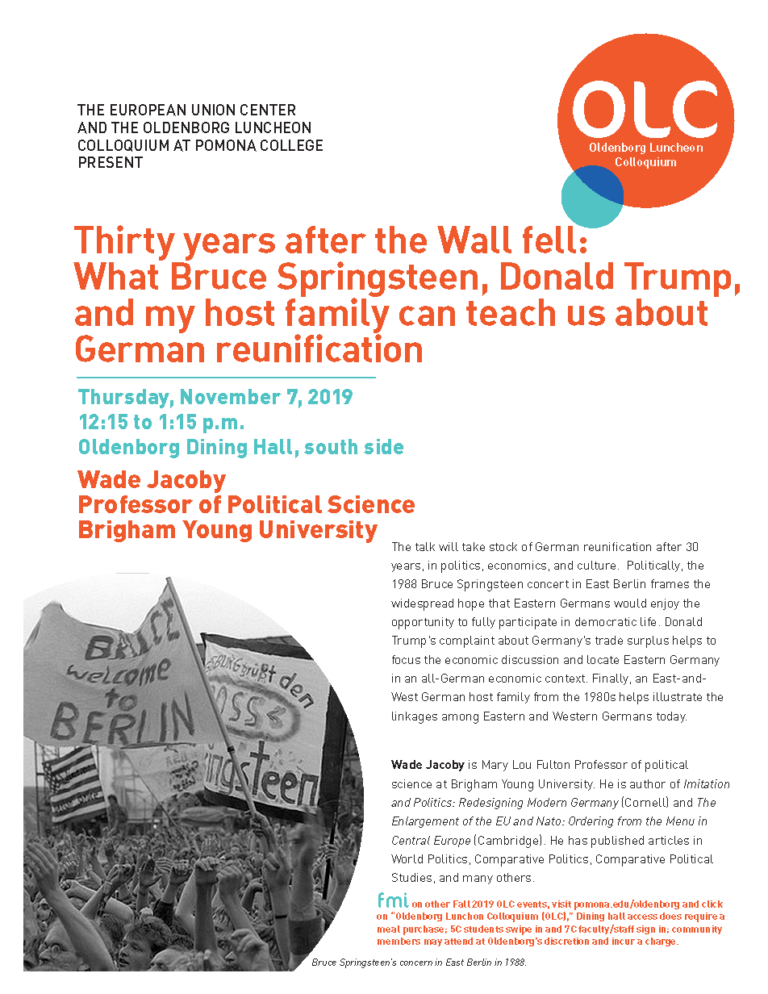 Thirty Years After the Wall Fell: What Bruce Springsteen, Donald Trump, and My Host Family Can Teach Us About German Reunification
Thirty Years After the Wall Fell: What Bruce Springsteen, Donald Trump, and My Host Family Can Teach Us About German Reunification
Wade Jacoby
Brigham Young University
November 7, 2019, 12:15-1:15pm
Oldenborg, Pomona College
The talk will take stock of German reunification after 30 years, in politics, economics, and culture. Politically, the 1988 Bruce Springsteen concert in East Berlin frames the widespread hope that Eastern Germans would enjoy the opportunity to fully participate in democratic life. Donald Trump’s complaint about Germany’s trade surplus helps to focus the economic discussion and locate Eastern Germany in an all-German economic context. Finally, an East-and-West German host family from the 1980s helps illustrate the linkages among Eastern and Western Germans today.
Wade Jacoby is Mary Lou Fulton Professor of political science at Brigham Young University. He is author of Imitation and Politics: Redesigning Modern Germany (Cornell) and The Enlargement of the EU and Nato: Ordering from the Menu in Central Europe (Cambridge). He has published articles in World Politics, Comparative Politics, Comparative Political Studies, and many others. He received the DAAD Prize for his scholarship on Germany and the EU and was a Braudel Fellow at the European University Institute and a Senior Fellow at the US Treasury. Jacoby is co-editor of German Politics and serves on the editorial boards of Governance and European Security.
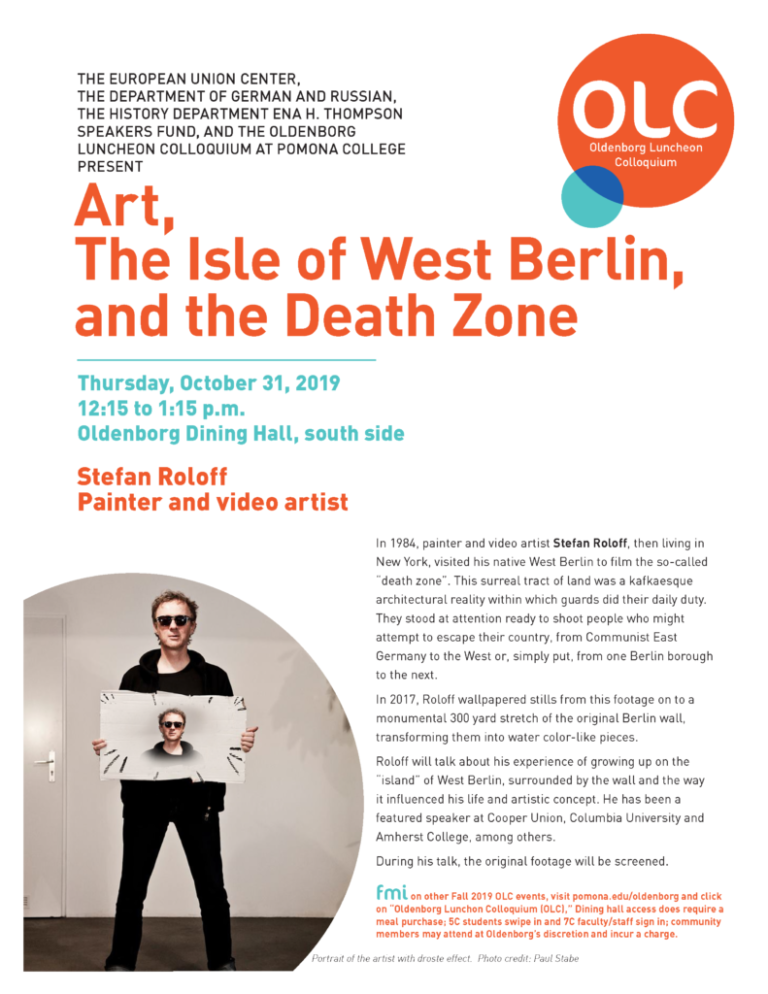 Art, the Isle of West Berlin, and the Death Zone
Art, the Isle of West Berlin, and the Death Zone
Stefan Roloff
Painter and Video Artist
October 31, 2019, 12:15-1:15pm
Oldenborg, Pomona College
In 1984, painter and video artist Stefan Roloff, then living in New York, visited his native West Berlin to film the so-called “death zone.” This surreal tract of land was a Kafkaesque architectural reality within which guards did their daily duty. They stood at attention ready to shoot people who might attempt to escape their country, from Communist East Germany to the West or, simply put, from one Berlin borough to the next. In 2017, Roloff wallpapered stills from this footage on to a monumental 300 yard stretch of the original Berlin wall, transforming them into water color-like pieces. Roloff will talk about his experience of growing up on the “island” of West Berlin, surrounded by the wall and the way it influenced his life and artistic concept. He has been a featured speaker at Cooper Union, Columbia University and Amherst College, among others.During his talk, the original footage will be screened.
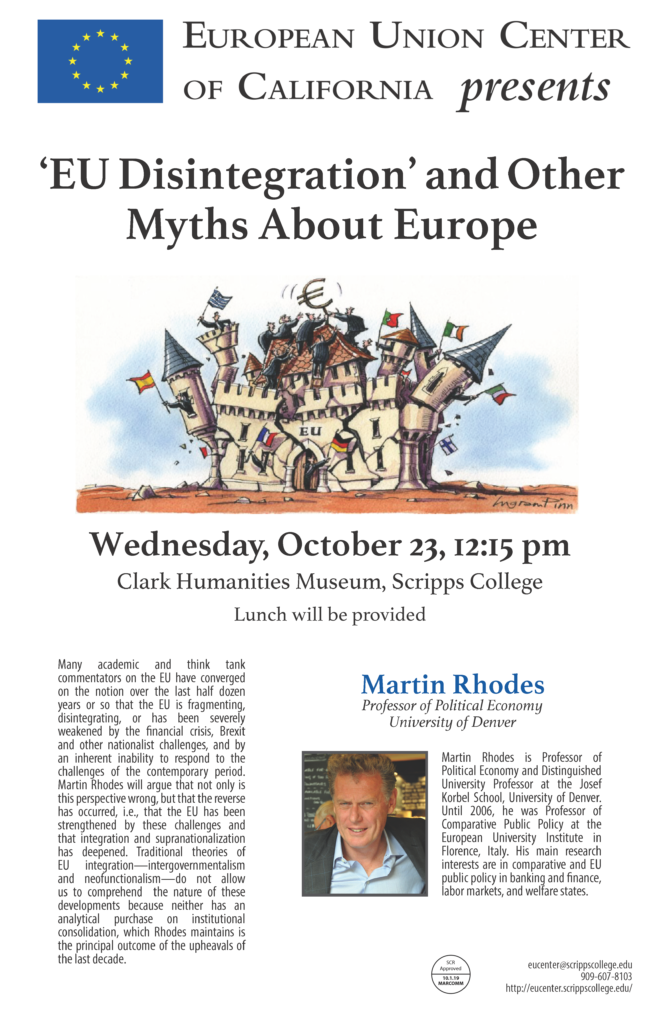 ‘EU Disintegration’ and Other Myths About Europe
‘EU Disintegration’ and Other Myths About Europe
Martin Rhodes
University of Denver
October 23, 2019, 12:15-1:15pm
Clark Humanities Museum, Scripps College
Many academic and think tank commentators on the EU have converged on the notion over the last half dozen years or so that the EU is fragmenting, disintegrating, or has been severely weakened by the financial crisis, Brexit and other nationalist challenges, and by an inherent inability to respond to the challenges of the contemporary period. Martin Rhodes will argue that not only is this perspective wrong, but that the reverse has occurred, i.e., that the EU has been strengthened by these challenges and that integration and supranationalization has deepened. Traditional theories of EU integration—intergovernmentalism and neofunctionalism—do not allow us to comprehend the nature of these developments because neither has an analytical purchase on institutional consolidation, which Rhodes maintains is the principal outcome of the upheavals of the last decade.
Martin Rhodes is Professor of Political Economy and Distinguished University Professor at the Josef Korbel School, University of Denver. Until 2006, he was Professor of Comparative Public Policy at the European University Institute in Florence, Italy. His main research interests are in comparative and EU public policy in banking and finance, labor markets, and welfare states.
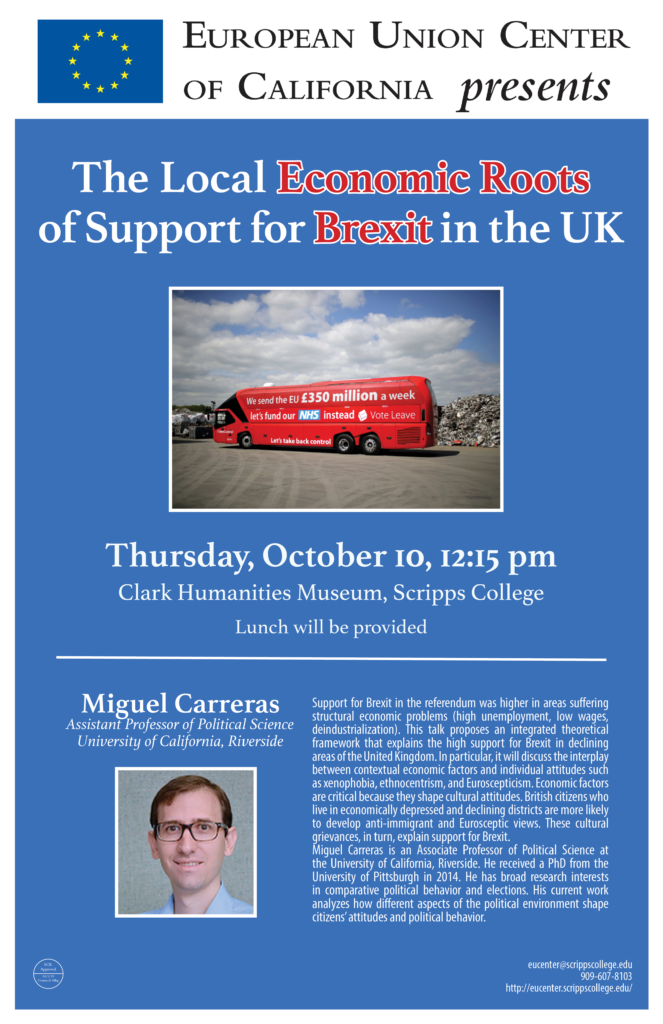 The Local Economic Roots of Support for Brexit in the United Kingdom
The Local Economic Roots of Support for Brexit in the United Kingdom
Miguel Carreras
University of California, Riverside
October 10, 2019, 12:15-1:15pm
Clark Humanities Museum, Scripps College
Support for Brexit in the referendum was higher in areas suffering structural economic problems (high unemployment, low wages, deindustrialization). This talk proposes an integrated theoretical framework that explains the high support for Brexit in declining areas of the United Kingdom. In particular, it will discuss the interplay between contextual economic factors and individual attitudes such as xenophobia, ethnocentrism, and Euroscepticism. Economic factors are critical because they shape cultural attitudes. British citizens who live in economically depressed and declining districts are more likely to develop anti-immigrant and Eurosceptic views. These cultural grievances, in turn, explain support for Brexit.
Miguel Carreras is an Associate Professor of Political Science at the University of California, Riverside. He received a PhD from the University of Pittsburgh in 2014. He has broad research interests in comparative political behavior and elections. His current work analyzes how different aspects of the political environment shape citizens’ attitudes and political behavior.
 Museum Visit to see Watching Socialism: The Television Revolution in Eastern Europe
Museum Visit to see Watching Socialism: The Television Revolution in Eastern Europe
The WENDE MUSEUM of the COLD WAR
Culver City, CA
Saturday, October 5, 9:30am-2:00pm
What was on TV in the Soviet Bloc? If “propaganda” is your immediate response, Watching Socialism: The Television Revolution in Eastern Europe will complicate the picture. Just like in the West, television was a part of everyday life in the Eastern Bloc, with varied programming, transnational reach, and even subversive potential. Both the capitalist West and the communist East attempted to leverage TV as a medium that represented modernity and progress during the Cold War. While television was indeed a tool that promised to spread communist ideology, the reality was more complex. The state had little control over how viewers received messages in the privacy of their living rooms. Audiences in some communist countries could get television signals from the West, which gave them a peek at the other side. And during the later years of the Cold War, socialist television introduced commercials, copied Western formats, and imported American series. Television was even occasionally appropriated to broadcast countercultural messages.
Co-curated by the Wende Museum and British scholars Sabina Mihelj and Susan Reid, Watching Socialism: The Television Revolution in Eastern Europe features excerpts from news programs as well as sitcoms, cartoons, subversive interventions, and other televised content alongside TV-related magazines, artifacts, toys, and television sets from the Eastern Bloc, offering a chance to experience what it was really like to watch TV on the other side of the Iron Curtain.
This event is open to students and faculty of Claremont Colleges only. To sign up, email us at eucenter@scrippscollege.edu.
 Crashing Out: Will Britain Leave the EU on October 31?
Crashing Out: Will Britain Leave the EU on October 31?
David Andrews
Scripps College
September 25, 2019, 6:45pm
The Athenaeum, Claremont McKenna College
Sponsored by Keck Center for International and Strategic Studies at CMC
Three years have passed since the British public voted for the United Kingdom to leave the European Union. But so far the British parliament has been unwilling, and a succession of Conservative governments unable, to deliver Brexit. David Andrews, professor of international relations at Scripps College, will assess the continuing deadlock in British politics, identify the United Kingdom’s remaining Brexit options, and survey the prospects for the UK’s future relationship with the EU.
David Andrews is a professor in politics and international relations at Scripps College, where he holds the Jungels-Winkler Chair of Contemporary European Studies. His areas of expertise include Atlantic political, security, and economic relations; the European Union and European integration; international relations, diplomacy and statecraft.

Workshop on EU Institutions and Foreign Policy
Katarzyna Pisarska
European Academy of Diplomacy
April 26, 2019, 12:15-4:00pm
Hampton Room, Scripps College
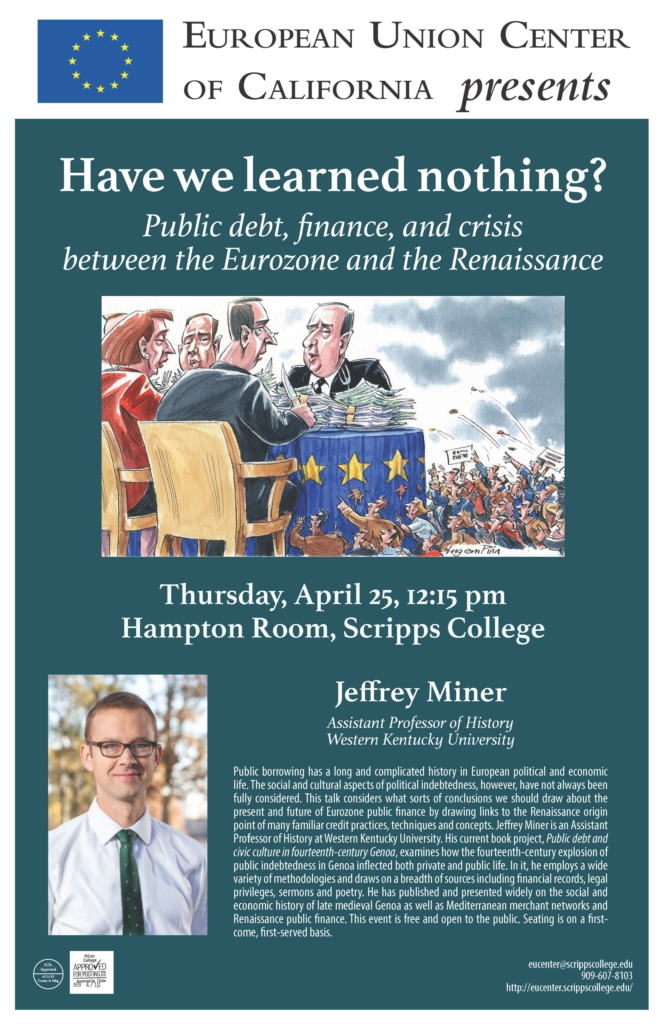
Have We Learned Nothing? Public Debt, Finance, and Crisis Between the Eurozone and the Renaissance
Jeffrey Miner
Western Kentucky University
April 25, 2019, 12:15-1:15 pm
Hampton Room, Scripps College
Public borrowing has a long and complicated history in European political and economic life. The social and cultural aspects of political indebtedness, however, have not always been fully considered. This talk considers what sorts of conclusions we should draw about the present and future of Eurozone public finance by drawing links to the Renaissance origin point of many familiar credit practices, techniques and concepts.
Jeffrey Miner is an Assistant Professor of History at Western Kentucky University. His current book project, Public Debt and Civic Culture in Fourteenth-Century Genoa, examines how the fourteenth-century explosion of public indebtedness in Genoa inflected both private and public life. In it, he employs a wide variety of methodologies and draws on a breadth of sources including financial records, legal privileges, sermons and poetry. He has published and presented widely on the social and economic history of late medieval Genoa as well as Mediterranean merchant networks and Renaissance public finance. Recent publications include: “Letters, Networks and Reputation among Francesco di Marco Datini and his Correspondents;” “Genoa, Liguria, and the Regional Development of Medieval Public Debt;” “The Genoese Economy” with Stefan Stantchev; and “La logique sociale de la dette publique génouse avant la fondation de la Casa di San Giorgio (XIIIe – XVe siècle).”
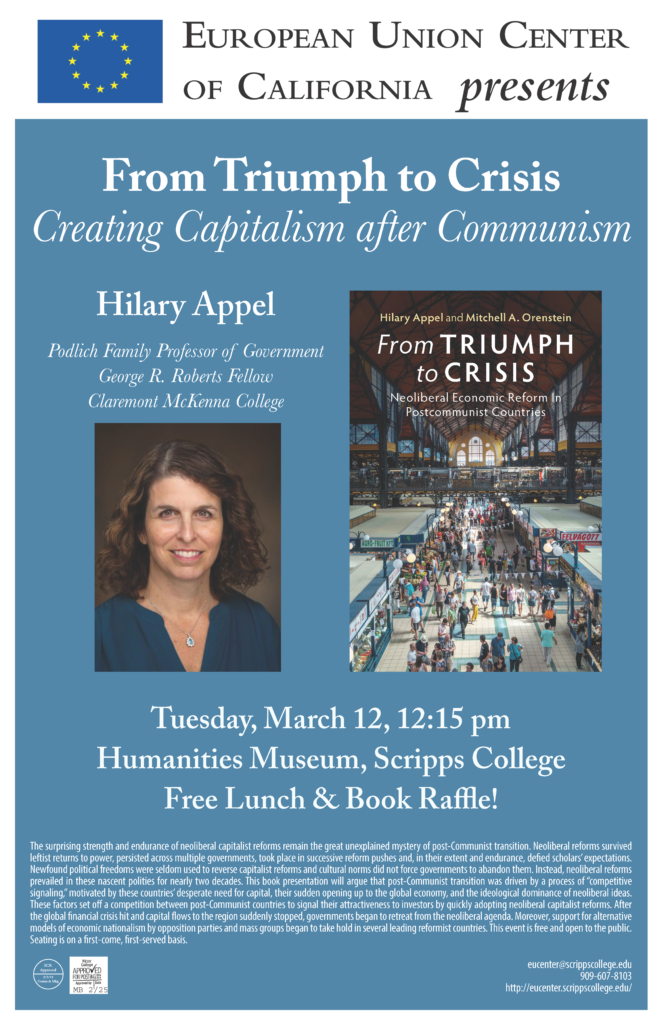
From Triumph to Crisis: Creating Capitalism after Communism
Hilary Appel
Claremont McKenna College
March 12, 2019, 12:15-1:15 pm
Humanities Museum, Scripps College
The surprising strength and endurance of neoliberal capitalist reforms remain the great unexplained mystery of post-Communist transition. Neoliberal reforms survived leftist returns to power, persisted across multiple governments, took place in successive reform pushes and, in their extent and endurance, defied scholars’ expectations. Newfound political freedoms were seldom used to reverse capitalist reforms and cultural norms did not force governments to abandon them. Instead, neoliberal reforms prevailed in these nascent polities for nearly two decades. This book presentation will argue that post-Communist transition was driven by a process of “competitive signaling” motivated by these countries’ desperate need for capital, their sudden opening up to the global economy, and the ideological dominance of neoliberal ideas. These factors set off a competition between post-Communist countries to signal their attractiveness to investors by quickly adopting neoliberal capitalist reforms. After the global financial crisis hit and capital flows to the region suddenly stopped, governments began to retreat from the neoliberal agenda. Moreover, support for alternative models of economic nationalism by opposition parties and mass groups began to take hold in several leading reformist countries.
Hilary Appel is the Podlich Family Professor of Government and George R. Roberts Fellow at Claremont McKenna College. Professor Appel’s research examines the politics behind post-Communist economic reforms, the role of EU and NATO in Eastern Europe, and issues of identity and politics in the post-Communist world. In addition to publishing multiple books, including most recently From Triumph to Crisis: Neoliberal Economic Reform in Postcommunist Countries, co-authored with Mitchell Orenstein (Cambridge University Press 2018), she has authored numerous articles in leading scholarly journals like World Politics, Comparative Politics, Comparative Political Studies, Review of International Political Economy, Post-Soviet Affairs, East European Politics and Societies, and others. She has been awarded national fellowships from the Social Science Research Council, American Council of Learned Societies, Fulbright Foundation, National Council for Eurasian and East European Research, Woodrow Wilson International Center for Scholars, the Harriman Institute at Columbia University, and the Institute for the Study of World Politics. Last year Professor Appel received the G. David Huntoon Sr. Teaching Award at Claremont McKenna College.
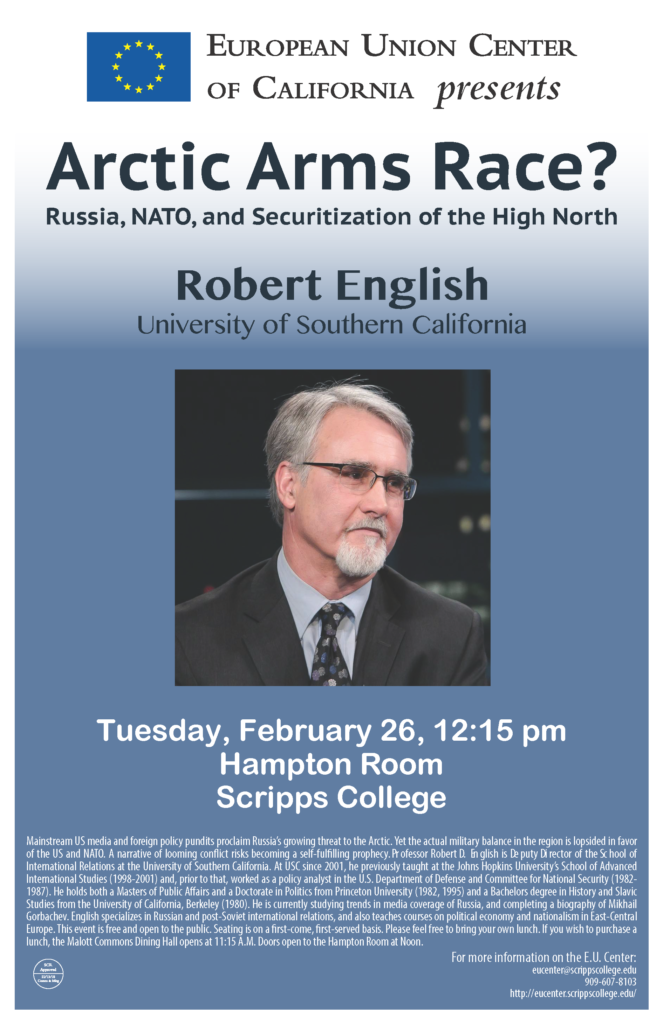
Arctic Arms Race? Russia, NATO, and Securitization of the High North
Robert English
University of Southern California
February 26, 2019, 12:15-1:15 pm
Hampton Room, Scripps College
Mainstream US media and foreign policy pundits proclaim Russia’s growing threat to the Arctic. Yet the actual military balance in the region is lopsided in favor of the US and NATO. A narrative of looming conflict risks becoming a self-fulfilling prophecy.
Professor Robert D. English is Deputy Director of the School of International Relations at the University of Southern California. At USC since 2001, he previously taught at the Johns Hopkins University’s School of Advanced International Studies (1998-2001) and, prior to that, worked as a policy analyst in the U.S. Department of Defense and Committee for National Security (1982-1987). He holds both a Masters of Public Affairs and a Doctorate in Politics from Princeton University (1982, 1995) and a Bachelors degree in History and Slavic Studies from the University of California, Berkeley (1980). He is currently studying trends in media coverage of Russia, and completing a biography of Mikhail Gorbachev. English specializes in Russian and post-Soviet international relations, and also teaches courses on political economy and nationalism in East-Central Europe.
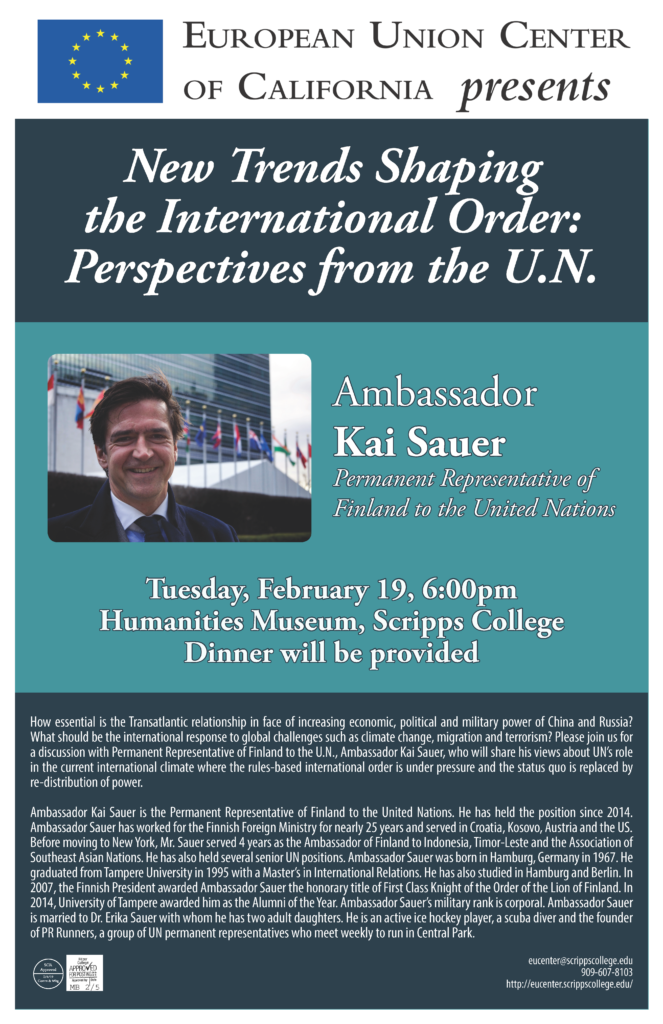
New Trends Shaping the International Order – Perspectives From the United Nations
Kai Sauer
Ambassador of Finland to the United Nations
February 19, 2019, 6:00-7:00 pm
Humanities Museum, Scripps College
How essential is the Transatlantic relationship in face of increasing economic, political and military power of China and Russia? What should be the international response to global challenges such as climate change, migration and terrorism? Please join us for a discussion with Permanent Representative of Finland to the U.N., Ambassador Kai Sauer, who will share his views about UN’s role in the current international climate where the rules-based international order is under pressure and the status quo is replaced by re-distribution of power.
Ambassador Kai Sauer is the Permanent Representative of Finland to the United Nations. He has held the position since 2014. Ambassador Sauer has worked for the Finnish Foreign Ministry for nearly 25 years and served in Croatia, Kosovo, Austria and the US. Before moving to New York, Mr. Sauer served 4 years as the Ambassador of Finland to Indonesia, Timor-Leste and the Association of Southeast Asian Nations. He has also held several senior UN positions. Ambassador Sauer was born in Hamburg, Germany in 1967. He graduated from Tampere University in 1995 with a Master’s in International Relations. He has also studied in Hamburg and Berlin. In 2007, the Finnish President awarded Ambassador Sauer the honorary title of First Class Knight of the Order of the Lion of Finland. In 2014, University of Tampere awarded him as the Alumni of the Year. Ambassador Sauer’s military rank is corporal.
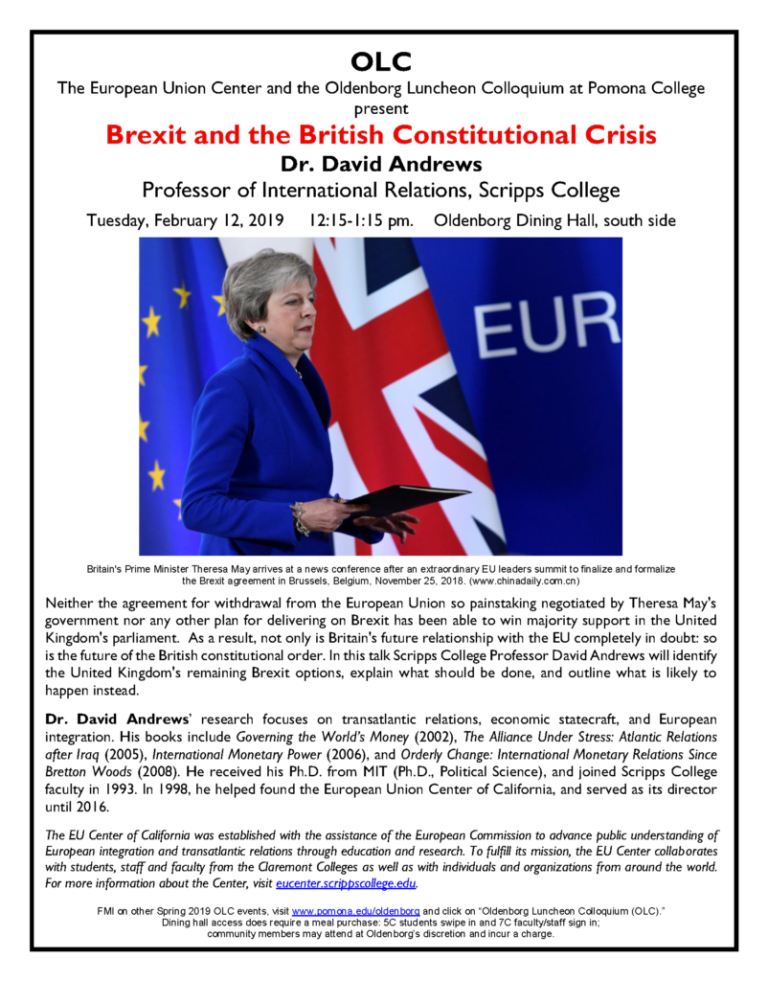
Brexit and the British Constitutional Crisis
David Andrews
Scripps College
February 12, 2019, 12:15-1:15 pm
Oldenborg Center for Modern Languages and International Relations, Pomona College
Neither the agreement for withdrawal from the European Union so painstaking negotiated by Theresa May’s government nor any other plan for delivering on Brexit has been able to win majority support in the United Kingdom’s parliament. As a result, not only is Britain’s future relationship with the EU completely in doubt: so is the future of the British constitutional order. In this talk Scripps College Professor David Andrews will identify the United Kingdom’s remaining Brexit options, explain what should be done, and outline what is likely to happen instead.
David Andrews is a Professor of International Relations at Scripps College. In 2009, he was named a Jean Monnet Chair in European Union Interdisciplinary Studies by the European Commission, and in 2011, he was named the Gabrielle Jungels-Winkler Chair of Contemporary European Studies by Scripps College. Dr. Andrews received his formal education at Amherst College and UC Santa Cruz (B.A., American Studies), Brigham Young University (M.A., International Relations), and MIT (Ph.D., Political Science). Dr. Andrews research focuses on transatlantic relations, economic statecraft, and European integration, especially European monetary integration. His books include Governing the World’s Money (2002), The Alliance Under Stress: Atlantic Relations after Iraq (2005), International Monetary Power (2006), and Orderly Change: International Monetary Relations Since Bretton Woods (2008). In addition to his work at Scripps, Dr. Andrews has held visiting professor and scholar posts at the Naval Postgraduate School, University of Southern California, New York University, London School of Economics, and the European University Institute in Florence, Italy. In 1998, Dr. Andrews helped found the European Union Center of California and served as its director until 2016.
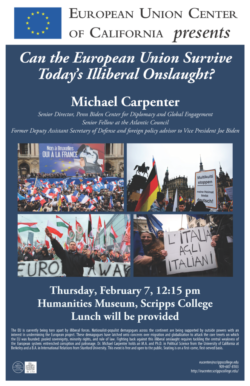
Can the EU Survive Today’s Illiberal Onslaught?
Michael Carpenter
University of Pennsylvania
February 7, 2019, 12:15-1:15 pm
Humanities Museum, Scripps College
The EU is currently being torn apart by illiberal forces. Nationalist-populist demagogues across the continent are being supported by outside powers with an interest in undermining the European project. These demagogues have latched onto concerns over migration and globalization to attack the core tenets on which the EU was founded: pooled sovereignty, minority rights, and rule of law. Fighting back against this illiberal onslaught requires tackling the central weakness of the European system: entrenched corruption and patronage.
Dr. Michael Carpenter is Senior Director of the Penn Biden Center for Diplomacy and Global Engagement and a nonresident Senior Fellow at the Atlantic Council. He also serves on the board of directors of the Jamestown Foundation and on the advisory board of Lithuania’s National Defense Foundation. Dr. Carpenter served in the Pentagon as Deputy Assistant Secretary of Defense with responsibility for Russia, Eurasia, the Balkans, and Conventional Arms Control. He served in the White House as a foreign policy advisor to Vice President Joe Biden as well as on the National Security Council as Director for Russia. Prior to that, Dr. Carpenter was a career Foreign Service Officer with the State Department. He holds an M.A. and Ph.D. in Political Science from the University of California at Berkeley and a B.A. in International Relations from Stanford University. Carpenter received fellowships for his academic work from the MacArthur Foundation, IREX, the American Council of Learned Societies, and the Fulbright Foundation. Dr. Carpenter regularly appears as a commentator on foreign affairs for MSNBC, BBC, CNN, ABC, NBC, Bloomberg, and Voice of America.
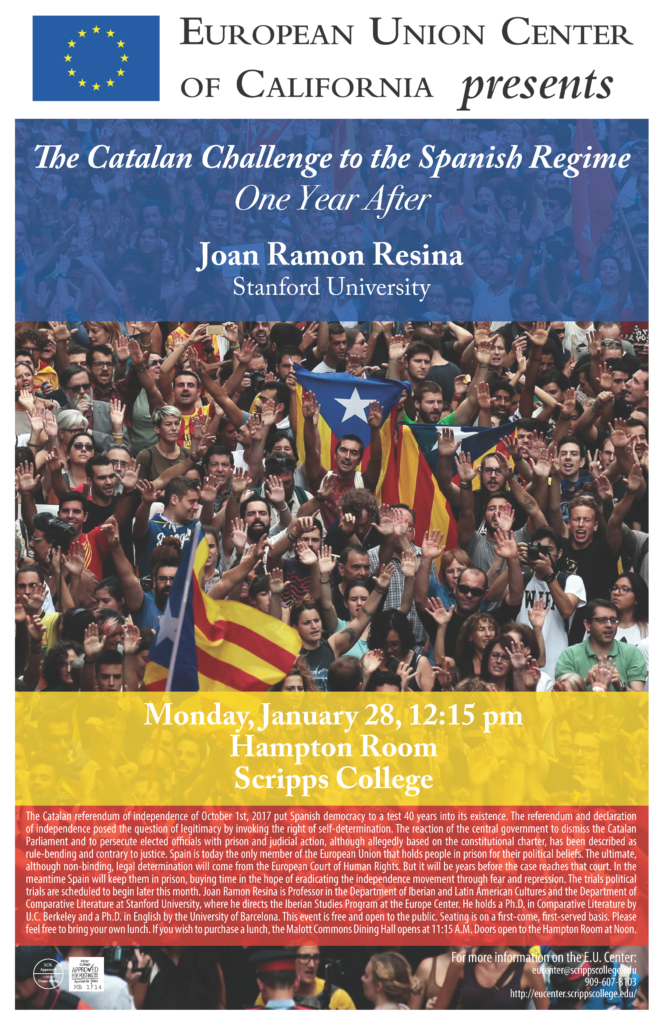
The Catalan Challenge to the Spanish Regime One Year After
Joan Ramon Resina
Stanford University
January 28, 2019, 12:15-1:15 pm
Hampton Room, Scripps College
The Catalan referendum of independence of October 1st, 2017 put Spanish democracy to a test 40 years into its existence. The referendum and declaration of independence posed the question of legitimacy by invoking the right of self-determination. The reaction of the central government to dismiss the Catalan Parliament and to persecute elected officials with prison and judicial action, although allegedly based on the constitutional charter, has been described as rule-bending and contrary to justice. Spain is today the only member of the European Union that holds people in prison for their political beliefs. The ultimate, although non-binding, legal determination will come from the European Court of Human Rights. But it will be years before the case reaches that court. In the meantime Spain will keep them in prison, buying time in the hope of eradicating the independence movement through fear and repression. The trials political trials are scheduled to begin later this month.
Joan Ramon Resina is Professor in the Department of Iberian and Latin American Cultures and the Department of Comparative Literature at Stanford University, where he directs the Iberian Studies Program at the Europe Center. He holds a Ph.D. in Comparative Literature by U.C. Berkeley and a Ph.D. in English by the University of Barcelona. He has been visiting Professor at the Humboldt University in Berlin, Universidad Iberoamericana in Mexico D.F., Universidad de Murcia, Universitat de València, the CUNY Graduate Center, and Columbia University. Awards include the Donald Andrews Whittier Fellowship at the Stanford Humanities Center, the Fulbright fellowship, the Alexander-von-Humboldt fellowship, a Wien International Scholarship, a DAAD grant, fellowships at the Simon Dubnow Institute in Leipzig and at the Internationales Kolleg Morphomata in Cologne, the Serra d’Or prize for literary criticism, the Omnium Cultural award (Ex Aequo with the TV channel Arte), and the Literary Criticism Award of the Institució de les Lletres Catalanes. He has published over one hundred and fifty essays in professional journals and collective volumes. Between 1998 and 2004 he was general editor of the journal Diacritics. Select books include: The Ghost in the Constitution: Historical Memory and Denial in Spanish Society (Liverpool UP, 2017), Josep Pla: The World Seen in the Form of Articles (Toronto UP, 2017), Barcelona’s Vocation of Modernity: Rise and Decline of an Urban Image (Stanford UP, 2008), Del Hispanismo a los Estudios Ibéricos. Una propuesta federativa para el ámbito cultural (2009), El postnacionalisme en el mapa global (Angle Editorial, 2005), El cadáver en la cocina: La novela policiaca en la cultura del desencanto (Anthropos, 1997), Los usos del clásico (Anthropos, 1991), Un sueño de piedra: Ensayos sobre la literatura del modernismo europeo (Anthropos, 1990). In addition, he has edited eleven collections of essays on different topics.





